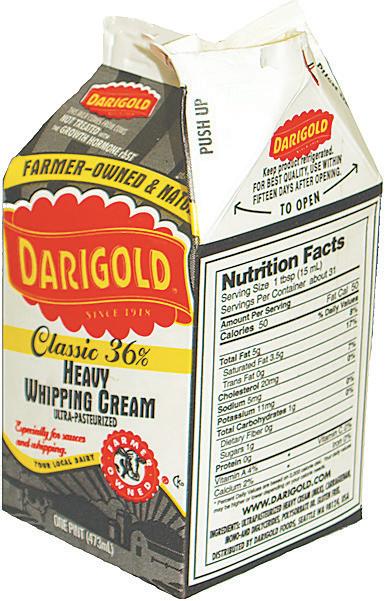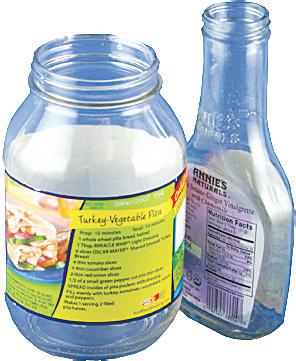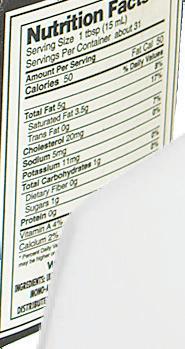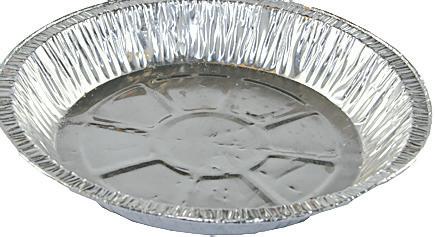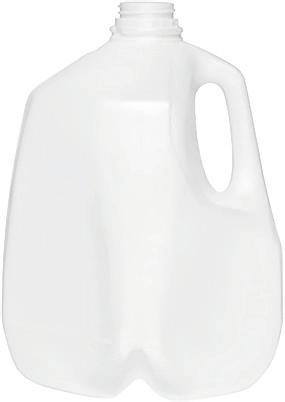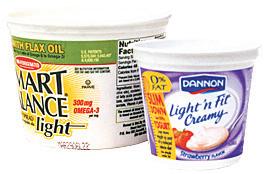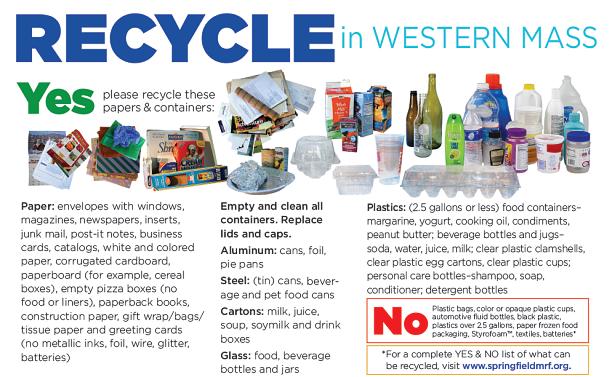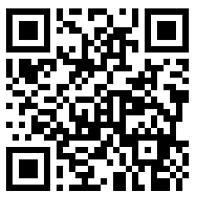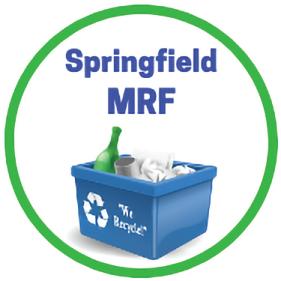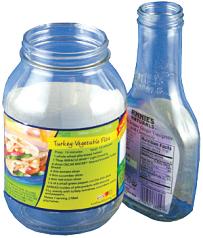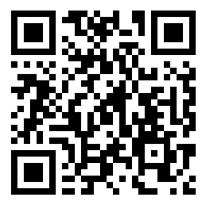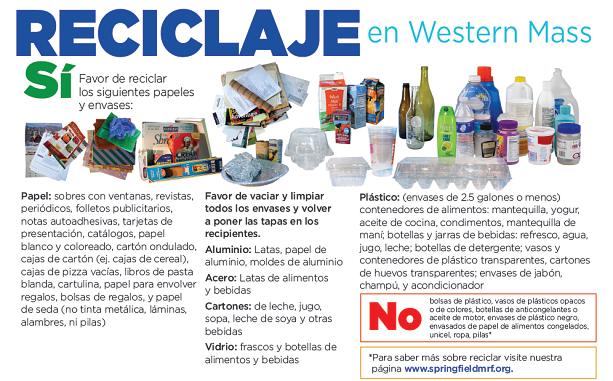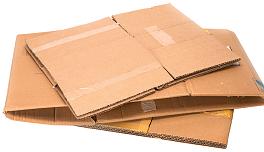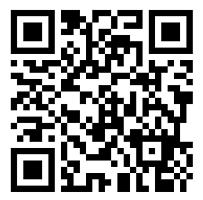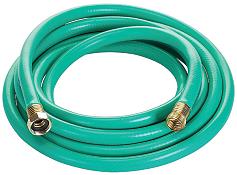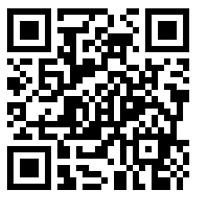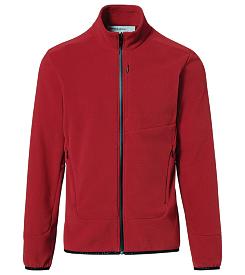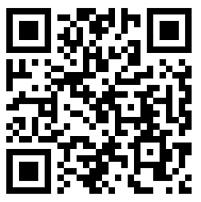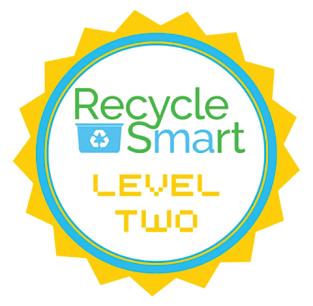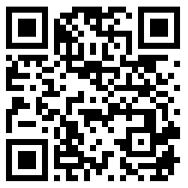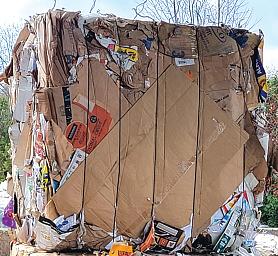


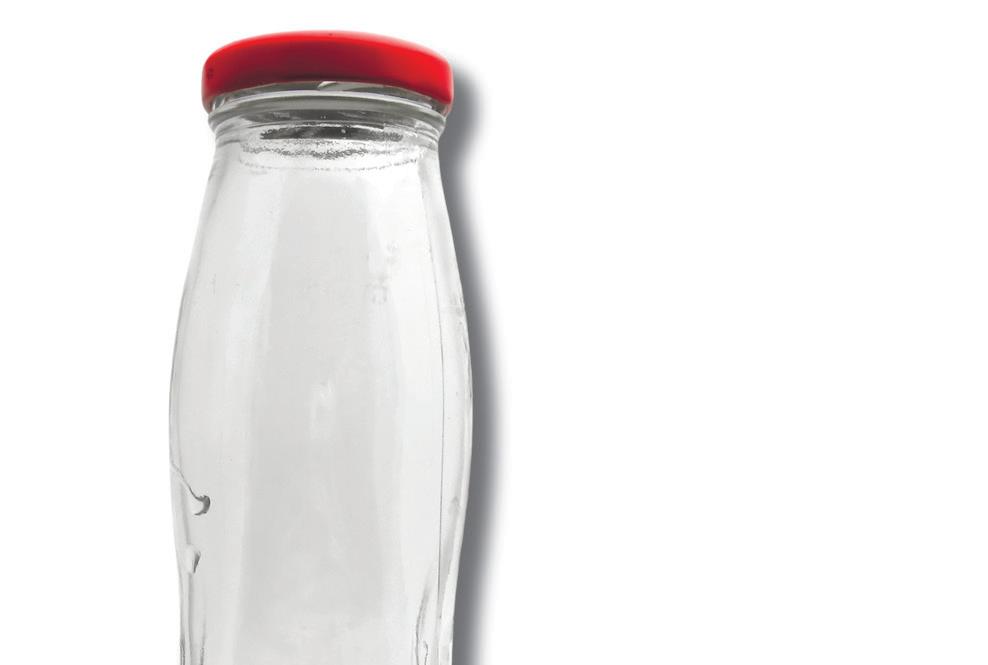























A GUIDE TO HELP YOU A GUIDE TO HELP YOU REDUCE TRASH, REUSE REDUCE TRASH, REUSE DURABLE ITEMS & RECYCLE DURABLE ITEMS & RECYCLE EVERYTHING YOU CAN EVERYTHING YOU CAN








A SPECIAL PUBLICATION OF THE BERKSHIRE EAGLE A SPECIAL PUBLICATION OF THE BERKSHIRE EAGLE
SATURDAY, NOVEMBER 16, 2024
SATURDAY, NOVEMBER 16, 2024
Information valid through November 2025



























The Springfield Materials Recycling Facility (Springfield MRF) Advisory Board is delighted to partner with the Berkshire Eagle to present the second annual Reduce Reuse Recycle Guide, and we send special thanks to the Berkshire business owners who support the Guide with their advertisements.
Like most things, the solid waste industry has its ups and downs over time. In 2019 recycling markets crashed, but throughout the COVID-19 pandemic, the markets rocketed as the rise in e-commerce increased demand for paper and cardboard and the production of sanitizing products demanded certain types of recycled plastic. This year recycling markets have remained strong. Our recyclable materials continue to be sold to manufacturers who
use the raw material to create new products. This year’s guide is a deep dive into what types of material manufacturers fi nd desirable (and what is being collected for recycling) as well as what happens after your bottles, cans, jars, jugs, tubs, cardboard, and paper leave the sorting facility. The Springfield MRF Advisory Board recently produced four excellent, short public education videos. We focus briefly on each of them and provide links and QR codes so you can access them easily with your phone, tablet, or computer. Since we’re heading into the holiday season, we’ve also provided tips about recycling and waste reduction to use while celebrating with friends and family. When the holidays are over, consider bringing recycling, reusing, and composting behaviors with you into the New Year.
As trash disposal and transportation costs continue to climb, practices that divert usable material from trash are worth more consideration. It turns out that reducing our trash is not only good for the environment, it is also good for municipal budgets. I hope you fi nd this year’s Guide as useful as my family does. I encourage you to put a copy in a safe place so you can refer to it all year long.
Sincerely,
Arlene C. Miller Chair, MRF Advisory Board

This guide is the second collaboration between The Berkshire Eagle and the Springfield Materials Recycling Facility (Springfield MRF) Advisory Board, with support from local leaders and advertisers. The Guide is produced in celebration of America Recycles Day on November 15. A browsable online version is available for the next 12 months via the Berkshire Eagle and at springfieldmrf.org.
These Springfield MRF Advisory Board members provided and reviewed content:
Mary Summers (Berkshire County Representative, Owner of Tommy’s Compost Service)
Amy Donovan (Franklin County Representative, Franklin County Solid Waste Management District)
Ruby Chang (Berkshire County Representative)
Linda Cernick (Hilltown Resource Management Cooperative Representative, North Berkshire Solid Waste Management District)
Susan Waite (MassDEP Municipal Assistance Coordinator, Western Region)
The following Berkshire County waste reduction leaders were also important contributors:
Peter Hofman (Chair of the Lee Greener Gateway Committee)










Rene Wood (Town of She eld Recycling Coordinator)
Andrew Ferrara (Program Manager of the Berkshire Zero Waste Initiative)
RecycleSmartMA.gov, a program of the Massachusetts Department of Environmental Protection, also contributed valuable content to this publication.
We are grateful to the following Springfield MRF Advisory Board members who provided content development assistance:
Jan Ameen (Franklin County Solid Waste Management District)
Arlene Miller (Hampden County Representative, Town of Longmeadow)
A special thank you to the Berkshire Eagle Advertising Team.
Please support our advertisers and tell them you saw their ad in the Berkshire Reduce, Reuse, Recycle Guide!

You’ve heard the stories on news networks and print media, and the reports from National news media, claiming that “only a small percent of plastic is recycled.” Unfortunately, these data are being misunderstood. This percentage is based on an Envi-
IN A NUTSHELL:
• Follow an empty peanut butter jar as it leaves a home recycling bin. Me and My Bin playfully explains how materials are sorted and baled at a recycling processing facility.
• Me and My Bin is a fun recycling introduction for classrooms, community sustainability groups, family discussions, and other settings.
ronmental Protection Agency (EPA) calculation that uses ALL plastics that are manufactured (even those that are not designed or intended to be recycled) as its basis of comparison. The data include plastics used in items such as trash bags, shower curtains, carpeting, furniture, housewares, appliances, medical supplies, office supplies, and much more. This figure does not refer to the items recycled in households through municipal recycling programs. Data reports such as these confuse readers that the items placed in their household recycling bins are trashed, when in fact, the percentage of household recycled materials in Massachusetts is significantly higher.
tional efforts of its Advisory Board and the member communities, the Springfield MRF only needs to dispose of about 5% of incoming material as “contamination.” Statewide, about 75-90% of the material that we put into recycling bins is recycled into new materials.
Board recently produced five short videos to help people understand what happens to the materials they recycle. Me and My Bin was the first; it uses humor and creativity to encourage residents of all ages to recycle and gives a behind-the-scenes look at how materials are processed for recycling. Four additional materialspecific videos focus on different topics: Container Recycling, Paper and Cardboard Recycling, What Happens to Recycled Materials, and Recycling’s Most Unwanted. These videos were recognized by the Environmental Protection Agency, and are included in their Municipal Toolkit for recycling education.
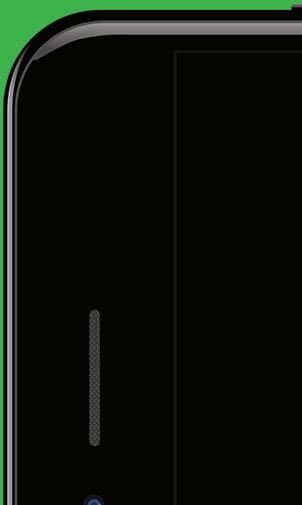



See all 5 videos at springfieldmrf.org. Watch Me and My Bin by scanning the QR code or going to: https://tinyurl.com/2mwbxce3
The Springfield Materials Recycling Facility (Springfield MRF), sorts, bales, and markets 95% of the incoming material from its 65 member communities. Due to the educa-
Model recycling programs like the Springfield MRF and its communities should be celebrated. At the same time, it is wise to encourage Extended Producer Responsibility (EPR) legislation that requires manufacturers to take responsibility for the packaging they create and to design their products for recycling and reuse. For more information on the proposed legislation, see: https://tinyurl. com/2adjpnw7. In addition, waste reduction (“reduce”) and reuse (as well as repair, repurpose, and rethink) should be encouraged and practiced.
The Springfield MRF Advisory
Look for the colored boxes throughout the following pages, where we’ll explore the topics covered in the videos. Find out what happens to your recyclables after they leave your bin, and how waste management companies, recyclers, and manufacturers value the material we recycle.

Whether your recyclables are collected at the curb or at a transfer station, here in Massachusetts they end up at a facility that sorts, bales, and markets them for reuse. Sending loads of recyclables for disposal (trash) is not allowed in Massachusetts. Trash loads are inspected at trash transfer stations, landfills, and incinerators, and if they contain more than 10% of banned materials such as recyclables, they are flagged, and responsible parties are cited and fined.
Instead of usable material being landfilled or incinerated, the cans, bottles, jars, jugs, tubs, foil, and cartons collected in recycling programs are sent to a facility like the Springfield Materials Recycling Facility (Springfield MRF) to be sorted, baled, and sold to secondary recy-
clers and manufacturers.
The Container Recycling video opens with trucks delivering large loads of recyclables straight from the Springfield MRF’s 65 member communities. Materials are “tipped,” or dumped into a large pile and pushed onto a conveyor belt to begin the sorting process.
The first step in this process is removing materials such as plastic bags and hoses (“contamination”) that cause problems when they get wrapped around the sorting machinery or are too large to go through the sorting system. (To learn more about contamination, see the “Recycling’s Most Unwanted” page and video.)
Next, a large rotating magnet attracts steel food cans and drops them into a giant bin. Once this bin
• Recycle cans, bottles, jars, jugs, tubs, foil, and cartons
• Materials are separated with various sorting technologies and by hand
• Sorted recyclables are compacted into bales and purchased as commodities
• Recycling facilities are designed to handle certain materials
See these printable resources on the Springfield MRF website (springfieldmrf.org):
• Recycle Containers: https://tinyurl.com/3tcupadk
• Recycling Brochure (Yes/No): https://tinyurl.com/3nfz9sak
• Detailed Yes/No List: https://tinyurl.com/t8vwjcma
is full, a door in the bottom of the bin is opened and the materials fall down a chute into a large baler that compresses the cans into a giant cube, or bale. This compressed bale is the most efficient way to transport recyclables.
Aluminum is sorted by an “eddy current separator,” an electrical current that zaps items made of lightweight aluminum off the conveyor belt. Glass bottles and jars are heavier than other collected materials, so a “blower system” pushes the lighter material to another conveyor belt while the heavier glass items remain to be picked off the line by staff members.
In 2021, the operator of the Springfield MRF, Waste Management Recycle America, invested in a major equipment upgrade; a $1.4 million


“T-Tech” sorting system with optical sorting capabilities for plastic. As Plant Manager Mike Moores explains, “This machinery can tell what’s a PET bottle or a polypropylene (PP #5) tub lid and blow it into different categories.” These largescale investments show that the materials we recycle have value and that proper sorting is important to waste management companies.
Sorted materials are compressed into bales, which are loaded onto trucks for transport to buyers. Material audits are performed regularly: staff members break open the sorted bales to search for items that should not be in a particular bale. If consistent mistakes are found, the equipment or processes will be adjusted and improved for the highest quality bales.




Watch Container
Recycling by scanning the QR code or going to: https://rb.gy/3i1z
See all five videos at springfieldmrf.org

In the Paper and Cardboard Recycling video, Springfield Materials Recycling Facility (Springfield MRF)
Plant Manager Mike Moores explains the paper sorting process. Mixed residential paper is separated from cardboard with “star screens” that divert mixed paper between rotating discs while cardboard rides along the top. Paper and cardboard items that we use every day are recycled; this includes junk mail, office paper, newspapers, magazines, cereal boxes, empty pizza boxes (really!), and shipping boxes. Items that cannot be recycled include shredded paper and the following paper items that are coated with plastic: paper cups, frozen food packaging, soda, and beer case packaging.
PIZZA BOXES
The Covid-19 Pandemic highlighted the key role that recycling plays in supplying raw materials for manufacturing. Cardboard box makers could barely keep up with the demand for new shipping and pizza boxes. The
mixed paper, paperboard, and corrugated cardboard (“fiber”) that was collected in western Mass helped to meet the demand.
Pizza boxes are recyclable: a 2020 study (tinyurl.com/pizzaboxes2020) by West Rock, a major US corrugated cardboard manufacturer, found that grease on pizza boxes does NOT cause problems for recycled paper manufacturers, as previously thought. It is now OK to put the ENTIRE pizza box into recycling…but it MUST be empty (no crusts, food, foil, plastic, or waxed paper).
Rand Whitney Containerboard in Montville, Connecticut buys baled cardboard from the Springfield MRF and other material recycling facilities throughout the Northeast. The Rand Whitney plant produces linerboards made of 100% recycled content. Linerboard is used for the flat parts of corrugated cardboard (the outside and inside of the box).
When the linerboard leaves the Connecticut facility, it goes on a short trip to Worcester, where it is finished into cardboard for… more boxes. So, from your town’s curbside collection or transfer station to Springfield, MA to Montville, CT, then to Worcester, MA; that’s a pretty short loop for a cardboard box!
Mixed residential paper is baled and sold to a paper mill in Ohio that produces cardboard liner-board and medium for new boxes as well as other products such as the rolled floor protection paper used for interior painting.
The Northeast Recycling Council (NERC) has been watching closely as North American paper mills open or expand in response to China’s 2018
National Sword policy that banned foreign scrap imports. NERC’s 2024 report “Recycled Paper Capacity Increases In North America 2017 - 2024” found that 23 of the 25 new capacity projects identified since 2017 have already been completed, including the development of 5 new mills. The majority of new capacity projects will use old corrugated containers (OCC, or cardboard boxes) as their feedstock.
Brooke Nash, Former Branch Chief at MassDEP, stated in 2023, “The silver lining of the Chinese ban was that there has been a resurgence in activity and investment in the recycling economy and our recycling mills right here in the United States and that means jobs, good jobs, and products being made here on our shores.”




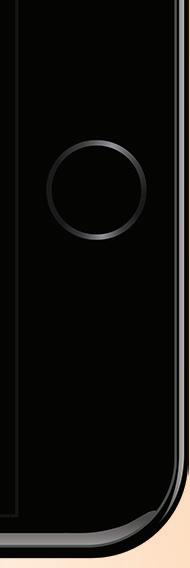
Watch Paper Recycling by scanning the QR code or going to: https://tinyurl.com/282tcjau
See all 5 videos at springfieldmrf.org.
• Recycle cans, bottles, jars, jugs, tubs, foil, and cartons
• Materials are separated with various sorting technologies and by hand
• Sorted recyclables are compacted into bales and purchased as commodities
• Recycling facilities are designed to handle certain materials
TO LEARN MORE:
See these printable resources on the Springfield MRF website (springfieldmrf.org):
• Recycle Containers: https://tinyurl.com/3tcupadk
• Recycling Brochure (Yes/No): https://tinyurl.com/3nfz9sak
• Detailed Yes/No List: https://tinyurl.com/t8vwjcma
The plastic bottles, jars, jugs, tubs, and other containers we put into our local recycling programs are sorted, baled, and sold to commodity buyers. These buyers process them further and send them to manufacturers to make new materials. Plastics are recycled into a wide range of products, from carpeting and vehicle interiors to bottles and jugs for shampoo, soaps, automotive fluids, and laundry detergent, as well as automotive parts, pipes, plastic lawn furniture, 5-gallon pails, recycling bins, compost bins, storage containers, and reclosable plastic paint cans.
When manufacturers use postconsumer recycled material in their products, they reduce the need for raw materials and resources. Recycling also saves energy, conserves
natural resources, reduces demand for space in landfills and incinerators for materials that can’t be recycled, and creates high-quality jobs. As a result of all of these benefits, it costs significantly less to recycle than to trash these valuable commodities.
For decades, the Springfield Materials Recycling Facility (Springfield MRF) Advisory Board has encouraged the sale of recyclable material from western Mass to domestic recyclers; current plastics buyers include Unifi Recycling in Reidsville North Carolina, and KW Plastics in Troy, Alabama. Baled postconsumer plastics are commodities that have significant value. For example, at the Springfield MRF, plastics comprise only about 12% of the residential recycling


Watch What Happens to Recycled Materials by scanning the QR code or going to: https://tinyurl.com/3fxkb54v
TO LEARN MORE:
IN A NUTSHELL:
• Glass is sent to SMI in CT. There it is cleaned, sized, decontaminated, and sold to be melted into new products.
• Buyers are paying to have materials shipped to them
• Sorted and baled plastics are sold to markets in the Southeastern part of the US.
• Many MRFs are now using robotics as well as optical sorting technologies.

stream, but provide 53% of its value, subsidizing the lower-value glass and mixed paper. And no wonder, as HDPE Natural (milk and water jugs) maintains a high value, alongside colored HDPE (laundry detergent bottles) and PET (beverage bottles).
There has been a lot of news suggesting that plastic recycling is broken, and this is very misleading. While we certainly have a long way to go to create circular solutions for all plastics that are produced, the plastics collected in household recycling programs have a home. Not only are all of the bottle, jar, jug, tub, and lid plastics we manage recycled exclusively in North America, but they end up in some exciting new products. Beverage bottles can go from bottle to bottle or into polyester fiber for carpeting and clothing, detergent and milk jugs go back into bottles and jugs, and polypropylene (PP, #5 plastic, such as yogurt tubs) is used in everything from auto parts to consumer goods.
Simple economics ensure that material handlers will extract as much value as they can from the material they collect or pay for. Otherwise, they have to pay to dispose of it, which greatly affects their bottom line (and is not allowed in Massachusetts).
In the past few years, the US recycling industry has made major investments in improved recycling infrastructure. A few years ago, the Springfield MRF invested in a $1.4 million equipment upgrade to improve its plastic sorting abilities and Murphy Road Recycling recently built a $40 million material recycling facility in Berlin, Connecticut. The Berlin facility is one of the largest and most technologically advanced recycling facilities in the world. Regional investments like these demonstrate the economic viability of the recycling industry in the US.
Follow Springfield MRF on social media: facebook.com/SpringfieldMRF, instagram.com/smrf_recycles
Follow RecycleSmartMA on social media: facebook.com/recyclesmartma, instagram.com/ recyclesmartma
Sign up to receive the RecycleSmart Newsletter via email: https://recyclesmartma.org
The Recycling Partnership: Solving for Circularity: https://recyclingpartnership.org
RECYCLING’S MOST WANTED: THE RIGHT STUFF
Every materials recycling facility (MRF) sorts, organizes, and bales tens to hundreds of tons of recyclables per day. For sorting to work effectively, acceptable items in recycling programs are limited to rigid containers such as plastic bottles, jars, jugs, tubs, clear plastic clamshell containers, and clear plastic cups; aluminum or steel cans, aluminum trays and foil; glass bottles, and jars; and milk and juice cartons. This packaging is from food, beverages, and soap/personal care products such as laundry detergent, dish soap, hand soap, shampoo, and conditioner.
The similar size and shape of the household packaging described above make it relatively easy to sort. (This is one reason why we prefer that recyclables are not flattened or crushed.) Specialized mechanical equipment uses optical sorting technologies, magnets, (electromagnetic) eddy currents, blowers, and other methods to separate materials into different streams. Staff members also perform hands-on sorting and decontamination (removing items that are not accepted). Unfortunately, most MRFs cannot take black plastic, as the equipment cannot differentiate between the material and the machine’s
conveyor belts.
Most material recycling facilities (MRFs) cannot sort random, dissimilar products, like plastic bags and films, metal objects (“scrap metal”), medical supplies, electronic waste, clothing, laundry baskets, or bowling balls.
Items that are too small (under 3”) can fall through or jam the equipment, and contaminate other material streams. This is the reason why caps should be placed back on their “parent” bottle. In comparison, items that are larger than 2.5 gallons pose the risk of becoming jammed in the equipment and blocking the flow of materials due to their size, so they are not accepted and are unwanted.
“Tanglers” such as plastic bags and wraps, hoses, light strings, cords, dog leashes, shower curtains, and tarps are definitely not wanted or accepted in mixed recycling because they get wrapped around the sorting machinery. These entanglements cause expensive shutdowns and threaten worker safety when staff members have to climb onto the equipment to strip away the bags, films, and other tangles.
Some materials can be dangerous for sanitation workers and MRF staff,
IN A NUTSHELL:
• “Tanglers” (plastic bags and wraps, hoses, light strings, etc.) get wrapped around sorting machinery.
• Wishcycling is putting something in the bin without knowing if it is acceptable and hoping or “wishing” it will be recycled.
• Wishcycling is a negative drain on the system.
TO LEARN MORE:
See these the printable resources on the Springfield MRF website (springfieldmrf.org):
• Recycling’s Most Unwanted and Why: https://tinyurl. com/3vcd928u
• Recycling Brochure (Yes/No): https://tinyurl.com/3nfz9sak
so they should never be put in recycling bins. These include syringes (needles), knives, or other sharp metals, medical waste, light bulbs of any type, hazardous waste, batteries, diapers, or trash.
Many of the materials discussed above as ‘unwanted’ by our local MRFs may have other opportunities for recycling. It is likely your local recycling center, transfer station, or municipal department has programs to properly recycle certain items, such batteries, syringes, scrap metal, light bulbs etc. See the Section on individual municipal programs (page 23) as well as the What Do I Do With..? section. When you’re not sure, check with your municipal recycling coordinator or public health department. Sorted and separated, some items that are unwanted at a MRF may be accepted elsewhere, such as a transfer station, a specialized recycling center, or a pay-to-dispose business.
Wanted recyclables should be free of solid food - a major source of recycling contamination. A quick rinse removes most types of food residue. For stuck-on foods like peanut butter, try scraping out the residue with a rubber cake frosting spatula or a paper napkin/towel. Recyclables do not have to be perfectly clean, but must

have most of the food removed. DO NOT put your recyclables in a plastic bag. One, the plastic bag is not recyclable and two, the bags are a hazard to recycling machinery, as well as a safety hazard for workers. Bagged materials have to be trashed. Labels on recycled items do not need to be removed. Caps can be placed back on bottles for recycling, and there is no need to flatten bottles or cartons.
HELP MAKE IT
MRFs all over the United States sort tons and tons of incoming household recyclables into a dozen or more categories. If that sounds daunting, don’t worry- the MRFs of today can handle it. At the Springfield MRF, mixed containers are sorted into nine different material streams, and paper is sorted into two grades. Material is baled and transported to various domestic facilities for processing and reuse in new products. But while technology plays a major role in the recyclable sorting process, so do individual residents. Removing the unwanted items highlighted in this article (and the Recycling’s Most Unwanted video) from your recycling bin is the first important step in a healthy domestic recycling industry.



• Not sure if an item is accepted in recycling? Visit recyclesmartma.org and search the Recyclopedia, a 700-item search tool with Massachusetts-specific recycling information.
• Also see “What Do I Do With…?” and “Recycle in Western Mass” in this guide

Watch Recycling’s Most Unwanted by scanning the QR code or going to: https://tinyurl.com/ uxmm9nw3
We designed this A-Z disposal guide to provide reuse, recycling, and disposal options for items not accepted in municipal recycling, and to provide more information for some that are. For information on what can and can’t be recycled, see the “Recycle in Western Mass” graphic at springfieldmrf.org/docs/postcard-mar23.pdf = Items that are hazardous or require special handling.
AEROSOL CANS
Empty aerosol cans belong in the trash, but if they contain hazardous material (e.g. paint, insecticide), they are household hazardous waste (see the Household Hazardous Waste Event page). Some transfer stations/recycling centers accept completely empty, non-hazardous aerosol cans in scrap metal dumpsters (empty cans are silent when pushing the button). See the Community Recycling Information table in this guide for local disposal information. More info: mass.gov/ info-details/safely-manage-hazardous-household-products.
ALUMINUM FOIL, CANS & “DISPOSABLE” PANS
Rinse clean and recycle with bottles and cans. Acceptable items include aluminum pie pans and takeout containers, disposable roasting pans, and clean aluminum foil (ball it up). Do not include “foil” lids from yogurt containers, as they contain a layer of plastic that causes issues during the recycling process.
ALUMINUM SIDING (see “Scrap Metal”)
AMMUNITION, EXPLOSIVES
Call your Police Department for proper disposal instructions.
ANTIFREEZE (see “Automotive Products”)
APPLIANCES (see “Scrap Metal”)
ARTS, CRAFTS & HOBBY ITEMS
Some paints, solvents, and related materials are hazardous and should be brought to a hazardous waste collection. Always
check the label before trashing. See the Household Hazardous Waste Event page in this guide for information on local hazardous waste collections. Crazycrayons.com offers a crayon recycling program and terracycle.com offers mail-in programs for many art supplies, markers, and pens. The Town of Sheffield accepts these items in its library. The Crayon Initiative (thecrayoninitiative.org) collects crayons and gives them to children in hospitals, check with your local Staples for local drop-off options.
Asbestos has strict removal and disposal requirements. Contact the Western Region of the Mass Department of Environmental Protection: John Moriarty, john.moriarty@ mass.gov. To find licensed asbestos contractors, go to mass.gov and type “Asbestos Contractors” into the search bar.
AUTOMOBILES (see “Vehicles”)
AUTOMOTIVE PRODUCTS
Automotive products contain hazardous materials and must be handled with care. Do not dispose of them in the trash, on the ground, or down the drain. Empty plastic automotive product jugs belong in the trash (replace caps first). Do not recycle them. Many towns accept automotive products at transfer stations or hazardous waste collections. See the Community Recycling Information table and Household Hazardous Waste Event pages in this guide.
• Motor oil
Even a small amount of improperly disposed motor oil will contaminate water and soil. Retailers that sell motor oil are required by law to accept up to two gallons of used oil at no charge with an original sales receipt. Many auto supply stores, auto repair shops, and quick oil change chains will accept used oil even if you didn’t buy it from them. Many towns accept motor oil at transfer stations or hazardous waste collections. For assistance, call the MassDEP Used Oil Hotline at 617-556-1022.
• Motor oil filters
Some auto supply stores (e.g. AutoZone), auto repair shops, and municipal transfer stations accept oil filters for free recycling. Some municipal transfer stations accept motor oil filters. Oil filters may be thrown away or recycled in scrap metal collections only when the oil has been completely drained (while the filter is still warm, puncture the dome top and drain into a collection container. Collect oil drips and dispose of properly as used motor oil; see above entry).
• Antifreeze
Antifreeze is hazardous; and its deceiving color and sweet taste may attract children, pets, and wild animals. Have your vehicle’s radiator flushed at a service station to ensure the antifreeze is properly disposed of. Some auto supply stores accept antifreeze for free recycling. Antifreeze should be brought to a household hazardous waste collection; see the Household Hazardous Waste Event page in this guide.
• Brake fluid
Brake fluid is hazardous and must be brought to a household hazardous waste collection.
• Car parts
Search online or in the Yellow Pages for used auto/truck parts.
Call ahead. George Mielke Used Auto Parts in Sheffield and Drake’s in Lee are two examples.
• Tires
Some auto repair and tire shops accept tires for a small fee.
BABY FOOD POUCHES (see “Plastic Pouches”)
BAGS (see “Plastics”)
BALLASTS (see “Mercury and Mercury-containing Products”)
BATTERIES
Never put batteries of any type in a regular recycling bin. Common single-use household batteries (alkaline, carbon zinc, and zinc chloride in sizes A, AA, AAA, C & D, 9-Volt, lantern size) manufactured after 1996 that do not contain mercury or other hazardous/recyclable materials can be thrown away as trash. (Before disposal or storage, put plastic packing or electrical tape on the contacts of 9-volt and lantern batteries.)
Check labels carefully; some batteries that require special handling resemble alkaline batteries. ALL other battery varieties contain hazardous materials and require special disposal. Never put these batteries in recycling or trash bins. There are many convenient drop-off options for batteries, such as municipal transfer stations, Staples, Home Depot, and Berkshire Environmental Action Team (thebeatnews.org). See the Community Recycling Information table in this guide or search online with your zip code at earth911.com. Some hazard-
CONTINUED ON PAGE 11
ous waste collections accept batteries; see the Household Hazardous Waste Event page in this guide. More options for specific batteries:
• Button batteries (found in watches, hearing aids, electronics, and some toys) are accepted free of charge at watch/jewelry shops or audiologist offices.
• Lead acid batteries (found in vehicles, boats, motorcycles, kids’ ride-on toys, and lawnmowers) will be accepted by the retailer from whom you buy a new one (they are required to take one back at no charge). Scrap metal recyclers typically pay for lead acid batteries. Some transfer stations accept them.
• Lithium batteries (single use often used for cameras) can resemble alkaline batteries, but these should be recycled properly: some municipalities accept them. Check all batteries carefully before disposal; look for “Lithium” on the label.
• Rechargeable batteries contain heavy metals and can start fi res;
they should never be put in trash or recycling bins. Rechargeable batteries are found in rechargeable electronics such as cell phones, cordless phones, power tools, laptops, tablets, digital cameras, camcorders, UPS battery backups, rechargeable toys, baby monitors, robotic vacuum cleaners, emergency medical equipment, e-bikes, rechargeable devices such as toothbrushes, razors, flashlights and hand-held vacuum cleaners, plus batteries that can be recharged with a battery charger. Most transfer stations have special pails or boxes for rechargeable batteries, as do Home Depot, Lowes, and Staples. Rechargeable battery chemistries are Nickel Cadmium (Ni-Cd), Nickel Metal Hydride (NiMH), Lithium Ion (Li-ion), NickelZinc (Ni-Zn), and small Sealed Lead Acid (Pb) batteries (up to 11 pounds).
A label on a battery that has “mAh” or “RECYCLE - RBRC” in a circle indicates it’s rechargeable. For more information and recycling options, go to call2recycle.org.
Lithium batteries pose a fi re risk: if a lithium battery becomes swollen
or damaged, handle carefully and bag separately, then place the battery in a metal canister or glass jar surrounded by clay kitty litter or speedy dry. Bring to your town’s transfer station or hazardous waste site.
Beer and soda cartons or cases contain plastic or bonding chemicals so they stay strong when wet. Plastic and chemicals contaminate recyclable paper, so all “paper” beer and soda packaging should be placed in the trash.
Plastic six-pack rings and fourpack “snap top” can carriers are not accepted in household recycling. The rings wrap around sorting equipment at recycling facilities and pose a danger to wildlife. Cut up rings and put them in the trash or collect and mail six-pack rings to the RingRecycleMe program
(ringrecycleme.com).
“Snap top” six or four-pack can carriers are often made with 100% recycled plastic. However, snap tops are not recyclable because they are difficult to sort at recycling facilities. Mass Brew Bros has established a can carrier reuse program; save your snap tops and fi nd a dropoff location near you at: massbrewbros.com/can-carrier-recycling and paktech-opi.com.
Working bicycles in good condition may be gifted to individuals via an online sharing group (e.g. a “Buy Nothing” Facebook group or Freecycle.org), or offered to charities (search online via “bicycle donation”) and other organizations that will use them. The Old Stone Mill Center (oldstonemillcenter. org) in Adams accepts bicycles and bicycle parts. For recycling options, see “scrap metal.”
See disposal suggestions under
CONTINUED ON PAGE 12
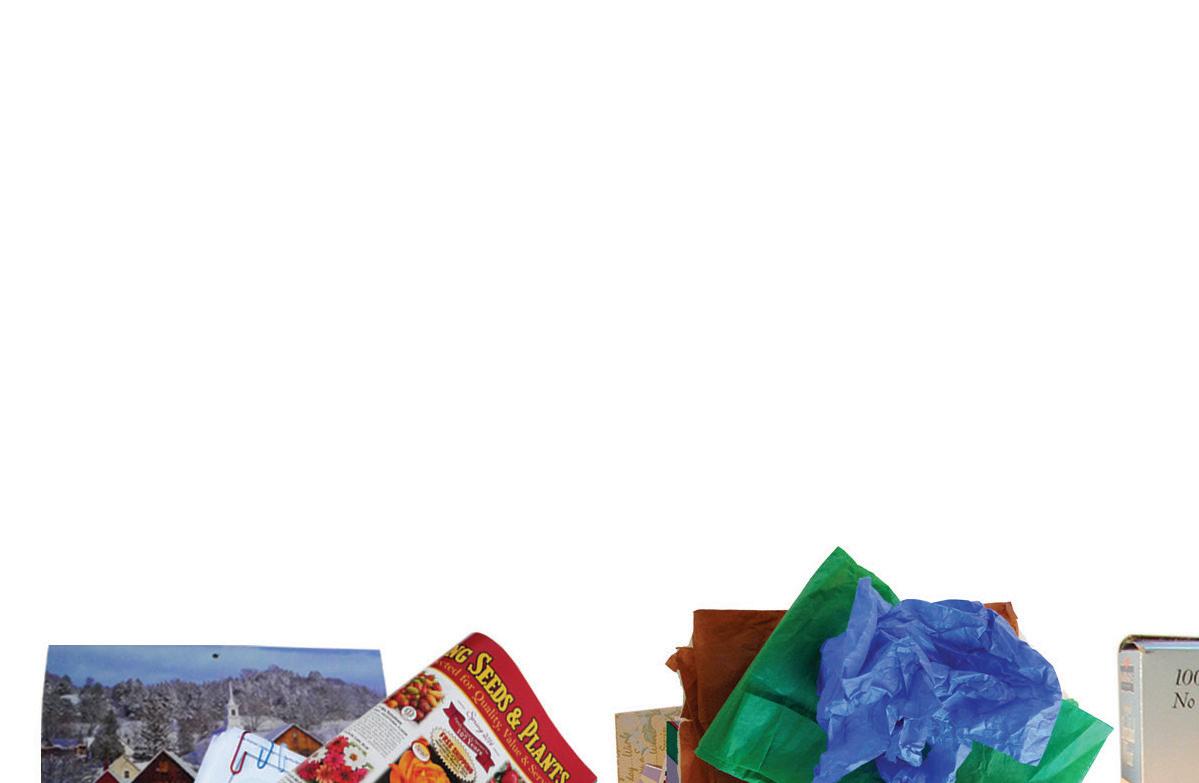
Yesplease recycle these papers & containers:
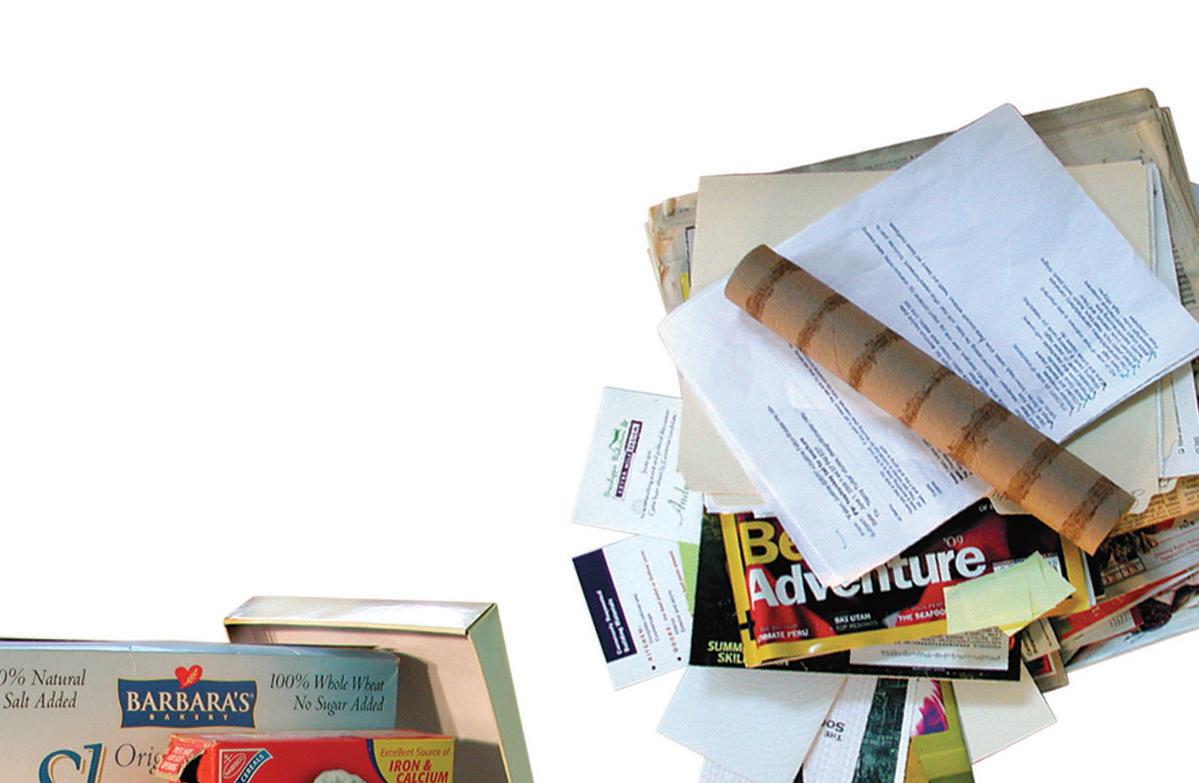

Paper: envelopes with windows, magazines, newspapers, inserts, junk mail, post-it notes, business cards, catalogs, white and colored paper, corrugated cardboard, paperboard (for example, cereal boxes), empty pizza boxes (no food or liners), paperback books, construction paper, gift wrap/bags/ tissue paper and greeting cards (no metallic inks, foil, wire, glitter, batteries)
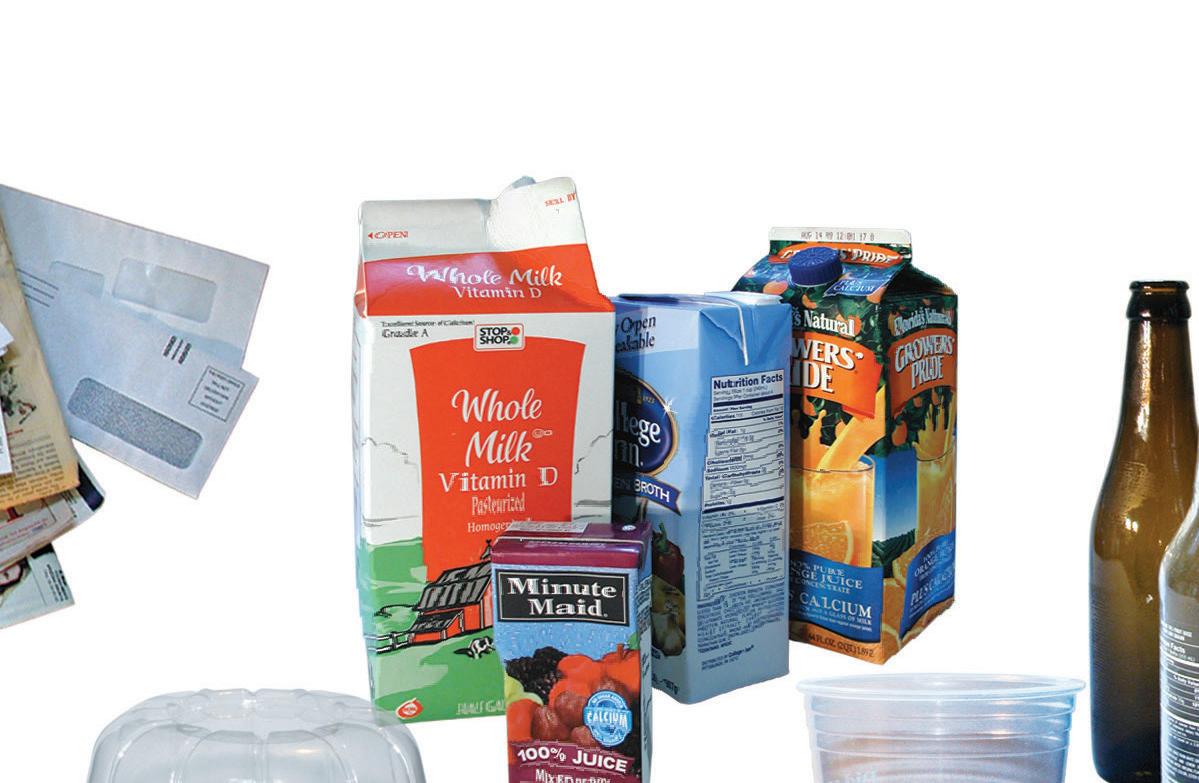

Empty and clean all containers. Replace lids and caps.
Aluminum: cans, foil, pie pans
Steel: (tin) cans, beverage and pet food cans
Cartons: milk, juice, soup, soymilk and drink boxes
Glass: food, beverage bottles and jars
Plastics: (2.5 gallons or less) food containers–margarine, yogurt, cooking oil, condiments, peanut butter; beverage bottles and jugs–soda, water, juice, milk; clear plastic clamshells, clear plastic egg cartons, clear plastic cups; personal care bottles–shampoo, soap, conditioner; detergent bottles
Plastic bags, color or opaque plastic cups, automotive fluid bottles, black plastic, plastics over 2.5 gallons, paper frozen food packaging, Styrofoam™, textiles, batteries*
*For a complete YES & NO list of what can be recycled, visit www.springfieldmrf.org.
“Vehicles.” Metal boats are accepted at scrap metal dealers, while other varieties are sometimes accepted as bulky waste at municipal transfer stations (call to inquire, see local contact info in the Community Recycling Information table). All engine-type fluids must first be drained and properly disposed of.
Books in good condition may be sold (used bookstores, tag sales), donated (public libraries, senior centers, fund-raising sales, drop boxes at transfer stations), or shared (book exchanges, swap shops).
“Little free libraries” have grown in popularity; find one near you at: littlefreelibrary.org/map.
Paperback books and phonebooks are recyclable in small quantities, as are only the pages of hardback books. Rip pages out and recycle those. Covers and spines from hardcover books must be placed in the trash.
Plastic caps and lids are recyclable only when fastened to a plastic bottle/jar/jug/tub, so you can keep the lid on! Loose plastic tops should be trash as they can create safety hazards and mechanical issues at recycling facilities. Metal screwtop lids from glass jars (e.g. pasta sauce, pickle jar) should be attached to the container. Loose metal food can lids are acceptable, but it is best to push them inside the can prior to recycling.
Clean cardboard, boxboard, and paperboard boxes are recyclable (e.g., boxes from cereal, crackers, tissues, shoes, gifts, etc.). Attached plastic windows may stay but discard all plastic liners. Flatten.
Pizza Boxes are recyclable, as long as they are empty. A 2020 study found that greasy pizza boxes do NOT cause problems for recycled paper manufacturers. It is now okay to put the entire empty pizza box into recycling (remove all
crusts, food, foil, plastic, or waxed paper). Link to the study: tinyurl. com/pizzaboxes2020
Boxes from frozen food, and ice cream, cases from soda or beer, and kitty litter boxes should be placed in the trash. These boxes are made with “wet strength paper,” which contains plastic or bonding chemicals that contaminate recyclable paper.
WRAP AND INFLATED PLASTIC PACKAGING (Air pillows) (see “Plastics”)
BUILDING AND REMODELING MATERIALS
Construction and demolition (“C&D”) waste includes asphalt, asphalt shingles, bricks, cement, cinder blocks, clapboard, concrete, doors, flooring, insulation, lumber, mortar, plaster, plywood, roofing, sheetrock, tiles, windows and wood. Feebased disposal options are available at many recycling/transfer stations; for more information, call the phone number listed for your town in the Community Recycling Information table. Vehicles with a capacity greater than 5 cubic yards are subject to strict disposal requirements for C&D wastes in MA. For more information go to mass. gov/lists/managing-constructiondemolition-cd-wastes.
Used building materials in good condition can be donated to a reuse store such as the Central Berkshire Habitat Restore in Pittsfield, MA (413-443-2106; berkshirerestore. org/). They accept used building materials in good condition. Call prior to delivery to confirm that your materials will be accepted, or to arrange for free pickup if donating large quantities. Donations may be tax-deductible. Other resources include RecyclingWorksMA’s Find a Recycler Tool (recyclingworksma. com/find-a-recycler), Freeycle.org, Buy Nothing groups on Facebook; and the Nextdoor app.
Wooden pallets can be reused or recycled as “clean wood waste”(e.g. used for mulch). One regional disposal options for large quantities is 360 Recycling (Westfield: 413-5620193).
Note: pressure-treated wood should only be disposed of in a landfill. Do not put it in a backyard compost pile, a brush, or a chipping pile; do not burn it or send it to a waste
incinerator for disposal. For bulky waste disposal at local transfer stations, see the Community Recycling Information table.
Staples and many electronic waste (e-waste) recycling programs accept digital cameras for free recycling. Digital and non-digital cameras may be accepted as donations to schools or other organizations.
Canning jars (e.g. mason jars) are not recyclable because of the thick, heat-resistant glass. Reuse, give to a friend who can use them, put in a tag sale or swap shop at a transfer station, or place in the trash.
Flor® offers a free mail-back recycling program for carpet squares (flor.com/recycle). Some nonprofit organizations accept relatively clean carpets for reuse. For local disposal information, see the Community Recycling Information table.
Car seats are not accepted in household recycling programs. Used car seats should not be accepted (or purchased) for reuse at second-hand stores or swap shops at municipal transfer stations for safety reasons.
Once a year (typically in April) Target hosts a car seat trade-in event (tinyurl.com/TargetCarSeatRecycle). Target accepts all types of car seats for recycling, including: infant car seats, convertible car seats, car seat bases, harness or booster car seats, as well as car seats that are expired or damaged. Materials from the old car seats are recycled by Waste Management (WM) to create new products such as pallets, plastic buckets, steel beams, and carpet padding. Target often provides a 20% off coupon for new car seat, travel system or similar when utilizing this program.
This category includes “gable top” refrigerated cartons used for milk and orange juice, plus shelfstable “aseptic packaging” for al-
mond milk, soup, and juice boxes. Cartons are acceptable in recycling programs in Western Mass. In recycling programs where paper is separated, cartons should be recycled along with bottles, cans, and containers. Rinse cartons, and discard straws; plastic caps and spouts may remain on cartons. Do not flatten. Ice cream cartons are not accepted in recycling. Don’t include foil drink pouches (e.g., Capri Sun, Honest Kids) in municipal recycling. See “Plastic Pouches” below for recycling options.
CARTRIDGES (see “Ink, Printer and Toner Cartridges”)
CD’S/DVD’S (See “Electronic Media”)




Cell phones should not be put in the trash due to their reuse value and hazardous/ flammable components. Never put cell phones in recycling bins. Numerous charitable and for-profit organizations accept cell phone donations. Search online using “cell phone donation.” Stores that sell cell phones also accept them for free recycling, and many cell phone manufacturers offer buyback programs through the mail. Many municipal transfer stations also accept them for special recycling programs, along with Staples and Berkshire Environmental Action Team (thebeatnews.org). For locations, search with your zip code at call2recycle.org/locator or earth911.com.
CHRISTMAS TREES (also see “Yard Waste”)
Some organizations collect holiday greens (NO tinsel, wire, or sprayed items) and bring them to local farms. The Lee Lions Club does this annually for Lee residents. Check Lee’s Town website during the holidays.
Terracycle’s Free Cigarette Waste Recycling Program (terracycle.com) accepts extinguished cigarettes, filters, loose tobacco pouches, and outer plastic and inner foil
CONTINUED ON PAGE 13
packaging for recycling.
CLAMSHELLS AND CLEAR MOLDED PLASTICS (see “Plastics”)
CLEANERS (see “Household Hazardous Waste”)
CLOTHING AND TEXTILES
Textiles have been banned from the trash in Massachusetts since 2022 (more info at mass. gov/guides/clothing-and-textilerecovery). Deliver CLEAN & DRY textiles and clothing to your local transfer station, donation center or store, or a drop-off box. Find textile collection sites with MassDEP’s Beyond the Bin search tool (https:// recyclesmartma.org/beyond-thebin-search/).
Acceptable items include socks, shoes, and gloves; clothing and accessories including belts, ties, undergarments, and purses; and linens such as curtains, toss pillows, light comforters, sheets, towels, and stuffed animals in any condition. Even worn, torn, mismatched, and stained textiles can be donated if they are clean and dry. Some animal shelters also accept old sheets, blankets, pillowcases, bedspreads, throw rugs, and towels for reuse (call first).
Non-profit organizations often target specific clothing items to benefit those in need, such as professional clothing (western mass. dress for success.org). New and gently used bras can be mailed to The Bra Recyclers for distribution to women in transition around the world: brarecycling.com; 480-9882283.
The Berkshire area is home to many consignment stores. Search the internet for “clothing consignment Berkshire County” or “clothing consignment near me” for local options. Online options include thredup.com, swap.com, poshmark. com, and wornwear.patagonia.com.
Some textile collection organizations will pick up curbside. CMRK (www.cmrkne.com; 508.466.4590), serves a number of Berkshire County municipalities, and The Hartsprings Foundation (hartsprings.org), serves Great Barrington, Lee, Lenox, and Pittsfield.
Do not put hangers of any type in recycling bins: hangers get caught in machinery at recycling facilities. Metal hangers are accepted for reuse by some dry cleaners and are also accepted in scrap metal recycling dumpsters at most recycling/ transfer stations. Unfortunately, plastic hangers are not recyclable and should be put in the trash when they are no longer usable. Hangers are reusable; offer via an online sharing group (e.g. Freecycle.org, “Buy Nothing” Facebook group). Some charitable organizations accept hangers for reuse or resale.
These are not accepted in household recycling bins. Empty Nespresso pods can be recycled with the company’s mail-in program (nespresso.com/us/en/order/accessories/vertuo/recycling-bag). Terracycle sells boxes for recycling hundreds of pods from all brands plus related items(terracycle.com). Alternatively, there are many creative ways to reuse these types of pods.
(CFLS) (“see Mercury and Mercury-containing Products”)
COMPUTERS & TVS (see “Electronics”)
CONSTRUCTION & DEMOLITION WASTE (see “Building & Remodeling Materials”)
Never pour cooking oil down the drain, nor put it in trash, recycling, or municipal compost bins. Some local food waste services may collect certain types of oil. Call your local transfer station for relevant information.
Corks should never be put in recycling bins, carts, or dumpsters; remove corks from bottles before recycling. Natural corks can be composted via local/municipal/commercial composting programs or chopped up for backyard composting. ReCORK recycles natural wine and champagne corks (no plastic corks); multiple local drop-off sites
are listed at recork.org. There are no local recycling options for plastic corks. Terracycle offers a Zero Waste Box for plastic corks (terracycle.com). Reuse is an option; wine corks can be reused in many creative ways (search online for “cork art”).
Not recyclable in municipal recycling programs. Mail-in recycling programs for empty cosmetics containers can be found at www.maccosmetics.com/back-to-mac.
Plastic credit/debit/gift cards must be trashed. For metal cards, try returning them to your financial institution. Several financial institutions and card-issuing banks take back their own cards, including American Express, Chase, Citibank, Capital One, and Wells Fargo. Check with yours.
Clear plastic cups are the only type of cups accepted in household recycling (rinse; lids and straws go in the trash). Other types of plastic cups, including “Styrofoam”/ polystyrene (#6 plastic), colored keg cups, and opaque plastic cups are NOT recyclable.
Cups labeled “compostable” should NOT go in recycling. Compostable cups are accepted in some municipal or local compost programs, but are not designed to compost at home.
Paper cups, including traditional paper coffee cups, are not recyclable. Plastic coffee cup lids are too small to be recycled. Cardboard sleeves are recyclable. If paper coffee cups (and some lids) are compostable in municipal/commercial compost programs, they will have a label that says “BPI certified” or “compostable.”
DVD’S/CD’S (See “Electronic Media”)
Clear plastic egg cartons are recyclable. Paper and Styrofoam™ egg cartons are not recyclable, but are often reused by backyard chicken farmers. Paper cartons may be
composted in municipal compost collections or in home compost bins, if ripped into pieces.

State regulations prohibit disposal of screen-based electronics such as laptops, tablets, iPads, Kindles, flat screen TVs, monitors and CRTs (cathode ray tubes) in the trash. Most municipal transfer stations offer electronics recycling programs, although disposal fees may apply; see your town’s website or call town hall for pricing. Electronics that are mostly metal, such as computer towers, DVD players, and stereo components can also go in scrap metal recycling at transfer stations and recycling centers.
The EPA lists Call2Recycle (batteries and cell phones) and Earth911 as sites where you can search for disposal locations. Several retail stores and online companies accept electronics for recycling, including Staples, Best Buy, and Walmart (all of which handle items from multiple companies), and manufacturers like Apple, Amazon, HP, and others have recycling programs for their own products. Call ahead to be sure. Search online for electronics recycling. The Casella Lenox Transfer Station accepts most TVs for a fee based on size. Some computer retailers offer recycling with a new purchase. Various charities and nonprofits accept donations of working electronics. Call ahead before donating
ELECTRONIC MEDIA (CDs, DVDs, VHS, Cassette Tapes)
Put electronic media and their cases in the trash. CD cases shatter and their glass-like shards are hazardous for recycling workers. If selling or donating used media is not an option (some communities accept certain types via book donation programs), greendisk.com and terracycle.com (enter “media” into search bar) offer fee-based, mail-in recycling options.
EPIPENS AND SINGLE-USE INJECTABLE MEDICATION DEVICES
It is illegal to trash sharps in Massachusetts. They include plastic, metal, and electronics, so re -
CONTINUED ON PAGE 14
cycling or disposing of them takes effort. Some health or police departments have sharps disposal containers. Check with local municipal or private waste haulers/ transfer stations and household hazardous waste collections. Check with the pharmaceutical company/ manufacturer or pharmacy that dispensed it. Hospital pharmacies might accept them, and Walgreens and CVS sell boxes you can return for disposal. SafeNeedleDisposal. org lists locations in/near Berkshire County where you can drop them off. PureWay (pureway.com/) offers mail-in sharps disposal for a fee.
Contact your local Lion’s Club (lionsclubs.org) for the nearest collection box or mail eyeglass frames and prescription lenses to: Lions Clubs International Headquarters, 300 W. 22nd Street, Oak Brook, IL 60523. In addition, eyeglasses may be dropped in a collection box at a participating Walmart Vision Center. Other local optometrists may also accept old glasses. The Lee Public Library collects them and other libraries might also. Bausch and Lomb will recycle contact lenses, through Terracycle.com. If eyeglasses can’t be reused, put in the household trash, as they are not recyclable
FERTILIZERS & PESTICIDES (see “Household Hazardous Waste”)
FIRE EXTINGUISHERS
Fire extinguishers are considered hazardous because their contents are under pressure, and units manufactured prior to 1984 may contain dangerous chemicals. For disposal and recycling businesses and property managers can contact their fire control service provider; some municipal transfer stations accept newer fire extinguishers for special recycling along with propane tanks, some municipal hazardous waste collections may accept older fire extinguishers (check in advance), and Massachusetts Fire Technologies , 49 Haywood
Ave, West Springfield accepts them for a fee (7:30am-4:00pm, M-F) Contact your Fire Department for local disposal and transportation options.
Live fireworks are extremely dangerous and must be disposed of with great caution; call your local Fire Department. Do not throw unused fireworks in the trash or household recycling.
To properly dispose of U.S. flags no longer in usable condition, contact the American Legion, the Veterans of Foreign Wars (VFW), your town hall, or scout troops. Other flags may be recycled in textile recycling programs.
(see “Mercury and Mercurycontaining Products”)
FOOD WASTE (also see “Cooking Oil”)
Food waste (scraps and leftovers contribute to the climate crisis when decomposing in landfills. Composting food waste locally makes better environmental and economic sense. Local options include home composting, curbside pick-up by a private compost service, municipal transfer station compost programs (in Williamstown, Cheshire, New Marlborough, Great Barrington, and Egremont), and special local programs (such as Meadow Farm in Lee). To find a private compost service or local farm accepting food waste, visit recyclingworksma.com. Many municipalities offer discounted prices for countertop collection pails and home compost bins. For home composting instructions, visit mass.gov and search for “home compost.”
Since November 2022, Massachusetts businesses, organizations and institutions that create ½ ton of food waste per week are required to keep it out of the trash and instead reduce it, donate it, or send it out for animal feed, composting, or anaerobic digestion. RecyclingWorks in Massachusetts provides free assistance, food waste estimation tools, hauler lists, and more at: recycling-
worksma.com
FROZEN JUICE CONCENTRATED CONTAINERS
They typically consist of a mix of paper, plastic, and metal. Try reusing them first. see if your local recycling program accepts coated paperboard, #1 plastic, and metal. If it does, clean the container. separate the metal lid and plastic, and recycle. If it doesn’t, trash it. Terracycle. com offers a paid recycling box for coated paperboard containers.
FRUIT SNACK POUCHES (see “Plastic Pouches”)
FURNITURE
if they will accept them or donate them, along with clubs, to First TeeMassachusetts programs to empower kids and teens through golf (firstteemass.org; click on “donate”). Some thrift stores will accept clubs for resale. Instant Replay in Pittsfield is an example of a sports equipment consignment shop that may accept these items in-season.














































Furniture in good condition can be sold, donated for reuse, or offered via an online sharing group (e.g. Freecycle. org, Craigslist, or a “Buy Nothing” Facebook group). Consignment shops for certain children’s furniture is also a viable option, such as Bloom Kids Consignment and Kidding Around Consignment. If not reusable, see the Community Recycling Information table for disposal information (“bulky waste”). As of November 2022, mattresses and box springs may no longer go in the trash. See “Mattresses” for more information.










Cards are recyclable with paper if they do not contain metallic inks, glitter, foil, or batteries. Remove electronics from singing greeting cards and recycle button batteries in battery recycling programs (see “Batteries”). St. Jude’s Ranch for Children runs a mail-in greeting card reuse program; note restrictions on certain brands: stjudesranch.org/ recycled-card-program.
HANGERS (see “Coat Hangers”)
Acceptable items include glass bottles and jars from food & beverage, household cleaning, or personal care products. Rinse & recycle with containers. Lids can be placed back on item. (Loose lids fall through the sorting machinery.) Do not include corks. Labels need not be removed. These glass items are NOT accepted in recycling: drinking glasses, mugs, plates, vases, candle jars, light bulbs, window glass, mirrors, or Pyrex. Broken glass is also not accepted; wrap and place in trash. Bottle pumps (hand soap, etc.) should go in the trash.
Golf balls can’t be recycled, but they may be reused. Contact local golf courses or driving ranges to see
The National Hearing Aid Project accepts used hearing aids for refurbishment and distribution to those that need them: hearingaiddonations.org, 816-895-2410. Also check with your hearing aid specialist for reuse options. If your hearing aid is not worth salvaging, remove the button battery and recycle it in a battery recycling program (see “Batteries”), then place the hearing aid in the trash.
First, consider using up the product according to package directions, or giving it away to someone who will. Products with label warnings & words like caustic, toxic, corrosive, poison, flammable, danger & “keep out of reach of children” all require special handling. See the Household Hazardous Waste page in this guide for information about local household hazardous waste collection opportunities. New England Disposal Technologies (Westfield, MA) accepts many household hazardous wastes year-round for modest fees (nedt.org; 866-769-1621). Empty containers that once contained hazardous wastes are NOT accepted in recycling; replace caps and put empty containers in trash.
CONTINUED ON PAGE 15
For safer alternatives to hazardous household products visit: lesstoxicguide.ca, or turi.org/Our_Work/ Community.
The canisters are pressurized, so they cannot be recycled or put in the trash. Check with your waste hauler, transfer station, nearby hazardous waste facility, or household hazardous waste collection host. Most Walgreens and CVS pharmacies accept inhalers through their disposal programs.
Staples and Target stores accept used cartridges for reuse or recycling. Other options may be found via a search on earth911.com or find mail-in donation programs online by searching “cartridge donations.” Many manufacturers have their own take-back programs with free mailing labels. Search online for “(name of manufacturer) cartridge recycling program.” As one example, Planet Green Injects (www. pginkjets.com/; 800.377.1093) pays for used ink cartridges and remanufactures them.
Unwanted mail & catalogs are recyclable, but it makes more sense to reduce them at the source. Here are four free services to do so:
• Remove your name from commercial mailing lists: directmail.com/mail_preference;
• Stop delivery of unwanted catalogs, enter catalog name at catalogchoice.org;
• End pre-approved credit card & insurance offers: optoutprescreen. com;
• Take your name off phonebook mailing lists: yellowpagesoptout. com
Unwanted keys can be recycled via a scrap metal dumpster at a municipal transfer station (see the Community Recycling Information table in this guide,) or brought to a local scrap metal dealer.
(see “Paint & Paintrelated Products”)
Light bulbs of all types should be kept out of recycling bins. Fluorescent bulbs, including “CFLs” should be kept out of trash. Call your Public Health Department for safe handling instructions and local disposal sites.
• Fluorescent bulbs, including compact fluorescent bulbs (“CFLs”) and the green-tipped “low mercury” type contain mercury vapor and require special disposal. See “mercury & mercury-containing products” in this guide for more information. Handle carefully to avoid breakage.
• LED light bulbs can go in the trash but contain valuable materials and may be recycled with CFLs if a collection site accepts them (see “mercury & mercurycontaining products”).
• Incandescent light bulbs and halogen light bulbs are not recyclable. Wrap incandescent light bulbs in used paper or plastic before placing them in the trash.
Holiday light strings are NOT accepted in municipal recycling programs because they get wrapped around sorting equipment at recycling facilities, causing hazards for workers. Light strings are often ac-
cepted at scrap metal dealers and in scrap metal dumpsters or specialty containers at transfer stations. Broken string lights can be mailed to Holiday LEDs (holidayleds.com) for a discount on a future order.
Mail unwanted Mardi Gras beads and trinkets to the Arc of Greater New Orleans’ reuse program: ArcGNO, 925 Labarre Road, Metairie, LA 70001 (arcgno.org; 504-369-4033).
As of 2022, mattresses and box springs may no longer go in trash or Bulky Waste. Mattress recycling is now mandatory in MA, except for mattresses that are contaminated. Some charities will accept mattresses & box springs in very good condition; call first. When you purchase a new mattress, ask the retailer to take back and recycle the old one. Some transfer stations in the Berkshires accept mattresses for recycling (such as the Town of Dalton); fees apply. For local recycling information, search on your town’s website or call your town’s contact number in the Community Recycling Information table in this guide. If your municipality does not have a collection program, call a private junk hauler to pick up your mattress. Tough Stuff Recycling (978.307.4118; toughstuffrecycling. com/) serves several communities
in Berkshire County and offers curbside pickup. For information on other options, visit mass.gov and search for “mattress.”
Disposal of unwanted medication must be done carefully for several important reasons. Medications should NOT be poured down the drain or flushed down the toilet.
Wastewater treatment plants & septic systems are not designed to remove pharmaceuticals from wastewater. In addition, to protect animals and prevent drug misuse and abuse, medications should not be thrown in the trash. Bring unwanted, expired, or unused medications to one of the following safe disposal locations:
• Many area police departments offer permanent drop-off boxes for free disposal of prescription and nonprescription drugs, vitamins, and veterinary medications. You do not need to be a resident to use these drop boxes. Liquids, syringes (see ”Needles & Sharps” below), IV equipment, or chemotherapy drugs are NOT accepted.. For more information visit northwesternda.org/ addiction-recovery/pages/drugdrop-boxes.
• National chain pharmacies host free drop boxes for prescription medications. Call your local store for availability or search a DEA
CONTINUED ON PAGE 16
Online purchasing has increased the amount of packaging in the residential waste stream. Most of these materials are reusable; some are also recyclable:
• Cardboard boxes can be reused. Cardboard boxes should be recycled in municipal recycling programs; flatten if possible.
• Packing paper is reusable as well as recyclable.
• Amazon’s paper mailer that says “Recycle this mailer just like a box” is recyclable in municipal recycling programs.
• Plastic envelope mailers (single layer or bubble wrap) used by online retailers such as Amazon are recyclable with plastic bags (see “plastics”) in grocery/retail store recycling programs only. Do not put plastic mailers, bags, films, or other “soft plastics” in household recycling.
• Plastic-sealed air packaging and bubble wrap are reusable and are accepted for reuse by some pack-andship stores. Deflated air pillows and bubble wrap can
be recycled with plastic bags (see “plastics”) in grocery store recycling programs. Do not put in household recycling.
• Paper envelopes with bubble wrap on the inside are not accepted in recycling programs. Reuse or put in the trash.
• Meal delivery kits use thermal box liners (e.g. “Renewliner,” “QLiner,” “Climacell”) to keep food fresh. This packaging might claim recyclability, but it is not accepted in household recycling programs. Reuse, refuse (send back to the company), or put in the trash.
• Styrofoam™ blocks & shapes: not accepted in recycling; see “Plastics”
• Foam peanuts: not accepted in recycling; Check local shipping centers for reuse; see “Plastics”
• Cornstarch peanuts may be composted in a backyard bin, reused, or placed in the trash. However, these are not accepted by commercial composting facilities or at packing shipping stores
listing of disposal sites at tinyurl. com/deadisp. For acceptable items, see signage on the drop boxes, call stores, or visit pharmacy websites. Some stores that do not have drop boxes offer the DisposeRX program: disposerx.com
• National Prescription Drug Take-Back Day events are scheduled twice annually (April and October). Find dates and local collection locations at deadiversion. usdoj.gov/drug_disposal/takeback. Additionally, visit mass.gov/infodetails/find-a-waste-medication-kiosk for a map of permanent collection kiosks in MA.
If you are completely unable to deliver medications to a drop box or a take-back day, as a last resort small amounts of medications may be safely disposed of in the following manner: 1.) Remove any personal info from labels that could be used to obtain refills; 2.) Render medications unattractive to children, pets & thieves by dissolving pills or tablets in a small amount of water or rubbing alcohol (pour liquid medication into a container of kitty litter or sand); 3.) Place in two sealed plastic bags; and 4.) Conceal the package in your trash. Due to their small size and other factors, empty pill bottles are not recyclable. Animal shelters may collect washed, empty pill bottles to send medicines home with adoptees. Berkshire Amistad (berkshireamistad.org/), a 501(c)(3) nonprofit located on Route 41 near West Stockbridge, accepts empty pill bottles and a wide range of medical supplies, which are then trucked to Honduras to fill critical needs there. Mathew 25:Ministries 513-793-6256 also accepts empty and clean pill bottles.
MERCURY AND MERCURYCONTAINING PRODUCTS
Mercury is highly toxic and requires special disposal. It is not hazardous when contained in a sealed device. Reduce exposure by placing items in sealed plastic bags & handling them carefully to avoid breakage. Never put mercury (or items containing mercury) in the trash or recycling bins, on the ground, or down a drain. Don’t vacuum even the smallest spill. Instructions for handling mercury exposure can be found at: mass.gov; enter “mercury” in the search bar or search the web for “broken CFL” or “mercury spill.”
If a mercury spill does occur, follow the MassDEP’s guide on safely cleaning it up: mass.gov/guides/ massdep-mercury-information. Call the Mass DEP Mercury Hotline if you have questions about mercury or managing it safely: 866-9MERCURY (866-963-7287).
For local disposal information for the following mercury items, see the Community Recycling Information table and the Western Mass Household Hazardous Waste Event pages in this guide.
• Fluorescent light bulbs
All fluorescent light bulbs (even the low-mercury bulbs with green tips) contain mercury vapor; never put fluorescent light bulbs in trash or recycling. Handle carefully to avoid breakage; do not tape bulbs together. There are two primary fluorescent bulb categories:
o Compact fluorescent lamps (CFLs) fit in standard screwtype light sockets. They come in a variety of shapes and styles and are sometimes encased with a glass bulb.
o Fluorescent tube lamps do not fit in standard screw-type sockets. These include the standard straight, circular or U-shaped tubes, as well as tanning bed lamps, High-Intensity Discharge lamps (HIDs), and neon light tubing.
Both varieties may be accepted at municipal transfer stations and Hazardous Waste Collections; see the Community Recycling Information table in this guide for local disposal information. Straight lamps may be accepted at the Pittsfield Home Depot. New England Disposal Technologies (Westfield, MA) accepts CFL & fluorescent tubes yearround for various fees (nedt.org; 866-769-1621).
For local transfer station disposal see the Community Recycling Information table in this guide. In addition:
o Businesses can see a list of vendors who can pick up larger quantities at recyclingworksma.com.
o Residents can refer to the MassDEP’s Mercury Drop-off List: tinyurl.com/mercurydrop
o For additional assistance, leave a message in MassDEP’s Mercury Program Mailbox: (866) 963-7287.
• Thermometers
Many older household thermometers (fever, candy, meat, deep fry,
oven, temperature) contain liquid mercury. A mercury thermometer can be identified by the presence of a silver bulb at the end of a glass tube. Accepted in special programs at many municipal transfer stations and some Hazardous Waste Collections; see the Community Recycling Information table in this guide for local disposal information. Handle carefully and seal in a plastic bag. If the thermometer liquid and bulb are red, blue, purple, or green, it is not a mercury thermometer and it can go in the trash.
• Thermostats
Updating to a programmable thermostat? Don’t throw away your old wall-mounted thermostats: they contain a significant amount of liquid mercury. Leave thermostats in one piece, place them in a sealed plastic bag, and handle carefully to avoid breakage. In addition to special municipal collection programs (see the Community Recycling Information table in this guide), mercury thermostats are accepted for free recycling by some plumbers and plumbing retail stores. For local drop-off locations, go to thermostat-recycle.org.
• Ballasts
Most fluorescent light fixtures produced before 1979 contained ballasts with PCBs (polychlorinated biphenyls), a highly toxic substance. PCB-free ballasts are marked “No PCBs.” PCB ballasts are typically collected in special programs at transfer stations or other sites that collect larger fluorescent tube-type bulbs. Electronic and other nonPCB ballasts are safe to go into trash or bulky waste but are often not accepted in scrap metal recycling bins. See the Community Recycling Information table in this guide for local disposal information.
MICROWAVES (see “Scrap Metal”)
MOTH BALLS (see “Household Hazardous Waste”)
MOTOR OIL & FILTERS (see “Automotive Products”)
MUSICAL INSTRUMENTS
The Albany Fund for Education (albanyfundforeducation. org/instrument-program/) accepts used musical instruments. Buy reused instruments locally by searching online. Reach out to Hungry for Music
(hungryformusic.org) and the Gift of Music (giftofmusicinstruments. com) for shipping most types of instruments for donation.
NEEDLES & SHARPS
MA Sanitary Code states that it is illegal to dispose of sharps (hypodermic needles, syringes, lancets, & all other medical “sharps”) as trash. Never put a container of sharps in your recycling bin. Collection programs are available in many towns; call your Health Department or see a listing of all the sharps programs in the state, go to mass.gov, and type “needle disposal” in the search bar. Sharps containers are available for purchase at pharmacies, and they often include disposal options. Several mail-in disposal programs are available; search online for “sharps mail-in programs.” Stericycle is an example of a company that picks up sharps for safe disposal from businesses that generate sharps: stericycle.com or 866-783-7422
If your unwanted paint was purchased recently & it’s in good condition, consider donating it for reuse. Many school or community theater groups will accept quality paint products. You may also offer usable paint via an online sharing group (e.g. Freecycle.org or a “Buy Nothing” Facebook group).
• Petroleum (oil-based) paints, stains, thinners, & varnishes are considered hazardous materials, requiring proper disposal. See the Community Recycling Information table and Household Hazardous Waste Event pages in this guide.
• New England Disposal Technologies (Westfield, MA) accepts all types of paint yearround for modest fees (nedt.org; 866-769-1621).
• Latex paint & water-based stains can be put in the trash when completely dried and hardened. Speed up the process by adding latex paint hardener (available in hardware stores) or by stirring in clean kitty litter to the consistency of thick oatmeal & allowing the mix to harden. When the contents are no longer liquid, you can put the
CONTINUED ON PAGE 17
open paint can (without the lid) in your household trash.
PALLETS (see wood under “Building & Remodeling Materials”)
PANTYHOSE
Recycled Crafts recycles pantyhose, nylon knee-highs, and tights into pet toys, rugs, placemats, and table runners. They accept clean hosiery in any condition, even those with rips and snags. Email recycledcrafts@live.com for donation information, or visit: savemyhosiery.yolasite.com. Hosiery is also accepted in textile recycling programs, see “Clothing & Textiles.”
PAPER & CARDBOARD
Place clean and dry cardboard boxes, newspaper, office paper, school papers, magazines & junk mail, cereal boxes, and empty pizza boxes in your recycling bin. Avoid items with material that is not wood based, such as greeting cards with glitter, embellishments, metallic ink, or batteries, or items mixed/ coated with plastic or glued to plastic (e.g. paper shipping envelopes lined with bubble wrap). Details about paper items that cannot be recycled are provided as individual entries in this Guide, including shredded paper, hardcover books (see “Books”) and items coated/ mixed with plastic. Examples include paper cups (see “Cups”), beer/ soda packaging, and frozen/refrigerated food boxes (see “Boxes”). In dual stream recycling, milk cartons and soup/almond milk boxes should be recycled with containers (see “Cartons”).
Plastic bags should never go into municipal recycling programs. Some retail and grocery stores will accept EMPTY pellet bags in their plastic bag recycling programs (call fi rst). Pellet bags must be dry and completely EMPTY. Turn inside out, shake out, flatten and stack empty bags, roll up the stack and place the roll in an empty pellet bag. Ask your pellet supplier about bulk delivery (avoids bags), recycling programs, or bag take back programs.

Plastic bags from pet food, animal feed, or bird seed are not recyclable in municipal recycling or in plastic bag recycling programs at retail stores. This is also true for paper feed bags because they are lined with plastic to keep moisture out. Terracycle offers a few pet food bag recycling programs; go to terracycle.com and type “pet food bags” in the search bar. The Bag Share Project, a local group, may accept certain types of feed bags for reuse, and provides instructions on how to make bags: www. thebagshare.org

cause of the photographic chemical coatings in the paper. Old photographs are safe to throw in the trash. More modern photographs may or may not be recyclable depending on the printing process and the type of paper used. Homeprinted photographs that are printed on regular paper are acceptable in recycling.
PICKLEBALLS
P3 Cares (p3pbcares.org/) offers recycling. New England-based The Re-Pickle Project (therepickleproject.org/) is undertaking a recycling pilot. Service Pickleball (servicepickleball.com/) accepts donations of pickleballs, which turns into plastic lumber.
Traditional, glossy photographs are not acceptable in recycling be-
A 2020 study by West Rock (a major
US corrugated cardboard manufacturer) found that grease on pizza boxes does NOT cause problems for recycled paper manufacturers, as previously thought. It is now OK to put the ENTIRE pizza box into recycling…but it MUST be empty (no crusts, food, foil, plastic, or waxed paper). Link to the study: tinyurl. com/pizzaboxes2020. If you wish to compost a brown pizza box, you can shred it and add it to your compost pile, or contact your local compost service for more information.
Many people assume that all plastic items are accepted in recycling, but recycling is demand-based; only those plastics that can be made cost-effectively into new prod-
CONTINUED ON PAGE 18
Never place plastic bags of any type in household or mixed recycling bins, as they get tangled around sorting equipment and can become litter.
3 Bags MUST be empty, clean and dry without receipts, coins, or trash
3 Clean, dry plastic bags labeled:
3 #2 “HDPE,” “PE-HD”
3 #4: “LDPE,” “LLDPE” Including:
3 Grocery bags, produce bags
3 Newspaper bags
3 Dry cleaning bags (no receipts or staples)
3 Plastic cereal bags (if it tears like paper do not include)
3 Sandwich/Ziploc bags and bread bags: no crumbs, oils, food (remove large zippers)
3 Retail bags (#2 or #4) with string/hard plastic handles removed
3 Plastic outer wrap from packages of toilet paper, paper napkins, paper towels, diapers, sanitary products
3 Plastic shipping envelopes
3 Bubble wrap, air pillows (deflate air pillows)
3 Case wrap from cases of water, canned pet food, soda, etc.
3 Stretch wrap from furniture, electronics, etc.
X NO bag with a recycling resin code other than #2 (HDPE) or #4 (LDPE)
X NO crinkly grape bags, Lego bags, apple bags (often marked #5)
X NO bags with receipts, coins, trash
X NO bags with food or moisture
X NO food or cling wrap (e.g. Saran)
X NO prepackaged food bags (frozen food or prewashed salad)
X NO pet food, animal feed, bird seed bags
X NO coffee bags
X NO chip bags, granola bar wrappers, candy wrappers
X NO bags with paint or glue
X NO compostable plastic bags
X NO Tyvek™ envelopes
What about pellet stove fuel bags? See “Pellet Bags” in this guide.
To view pictures of acceptable items and get a list of drop off locations, nextrex.com/view/ educate#materials1
Trex is the major buyer of plastic film; more resources at: nextrex.com
Clip and hang this sign over your plastic bag
recycling collection at home, in the workplace, at school, or other locations.
ucts are on the “yes” list. Please note that plastic containers from food, beverage, soap, and personal care products are the ONLY type of plastic suitable for your household recycling bin. All other forms of plastic must go in the trash or, when available, to a separate special recycling program. See the box “Keep These Plastics out of the Recycling Bin” for additional details.
Containers from food, beverages, soap and personal products
The following items are welcome in your household recycling bin: plastic containers from food, beverage, soap or personal care products in the form of bottles, jars, jugs, and tubs. Plastic bottle caps & plastic tub lids are recyclable, if attached to the container (not loose). Plastic items that are smaller than a credit card or larger than 2.5 gallons are not acceptable because they cannot be sorted effectively. Bottle pumps should go in the trash. Please note that black plastics are not accepted
because they can’t be sorted with optical sorting technology.
Other items on the recycling “yes” list are clear plastic cups, clear plastic clamshells, and clear plastic egg cartons. Clear cups should ideally be rinsed before recycling; put lids and straws in the trash. If a clear cup is labeled compostable, do not put it in a recycling bin. Ask your hauler or visit springfieldmrf. org for details and graphics about household container recycling.
Bags & wrap (Do NOT place in household recycling bin)
Plastic bags, plastic films, and plastic wrap (“soft plastics”) create safety hazards, machinery malfunctions, and environmental problems at recycling facilities. Some of these materials are accepted in retail and grocery store collection programs (e.g. Big Y, Stop & Shop, Target, Walmart, Staples). In general, clean and dry plastic bags and
Some plastic items cause mechanical problems at recycling facilities, cost too much to recycle, are unwanted by manufacturers, or are recyclable only through separate recycling programs. Please do not add these to your household or municipal recycling mix:
X Plastic bags, plastic wraps and other “soft plastics”
X Black plastic (prepared food, to-go containers, microwave trays) (Some facilities are starting to accept black plastics.)
X Forks, spoons, knives & serving utensils
X Plastic items that are smaller than a credit card (e.g. loose caps, straws, condiment cups, Rx bottles)
X Plastic containers larger than 2.5 gallons in size
X Plastic plates
X Colored/opaque plastic cups (clear cups are OKsee the “Cups” entry)
X “Compostable” or “Biodegradable” containers and cups
X Foam (aka Styrofoam)
wraps are recyclable if they are: 1.) clear or translucent; 2.) moderately stretchy; 3.) marked #2 or #4; and 4.) empty and free of food residue. Two important exceptions are household food or “cling” wrap, which must be placed in the trash, and bags labeled “Compostable,” which can be placed in commercial or municipal composting or trash. See the accompanying table, “Plastic Bag Recycling” or visit plasticmakers.org for additional details.
Bulky, rigid plastic objects (Do NOT place in household recycling bin)
Many rigid plastic items are reusable until broken or damaged; offer them for free on an online sharing group (e.g. Freecycle.org or a “Buy Nothing” Facebook group).
Some communities offer specialized bulky rigid plastic (BRP) collection programs. Ask your community representative (see the Community Recycling Information table in this guide) about opportunities near you. BRP collections are highly selective and accept only clean, molded, rigid plastic pails, bins, crates, baskets, totes, barrels, wheeled trash toters (metal and wheels removed), and plastic lawn furniture.
Foam (Do NOT place in household recycling bin)
items (cups, egg cartons, food containers/trays, & packing material)
X Tubes (e.g. toothpaste, cosmetics, hair products)
X Plastic containers which once held toxic substances (e.g. motor oil)
X Molded plastic packaging (the stiff type that requires a sharp object to open)
X Binders, plastic folders
X CDs, DVDs and cases, video & audio tapes
X Plant pots & garden trays
X Six-pack rings (see “Beer & Soda Packaging”)
X Hoses, light strings, cords, pet leashes
X Plexiglass
X PVC products (pipes, siding, etc.)
X Manufactured plastic wood (decking material)
collection events and transport it to a foam recycling facility.
• Foam cups, plates, and trays: Even if they have a recycling symbol, food-related Styrofoam™ materials are not currently accepted at any recycling facilities. Place in trash.
Flexible plastic pouches that contained applesauce, fruit, kids drinks, yogurt, baby food, and health/beauty products, are NOT recyclable in municipal recycling programs. Terracycle has several different mail-in recycling programs for pouches and caps; go to: terracycle.com and type “pouches” in the search bar. Please remove all residual food and liquid.
(see “Building & Remodeling Materials”)
The recycling market for rigid foam material (aka Styrofoam™ or expanded polystyrene/EPS) is growing, but only certain blocky foams are accepted for special recycling programs. Rigid foam products may be divided into the general categories of shipping peanuts, blocky packing material, and foodrelated serve ware (cups, plates, trays):
• Foam shipping peanuts: Foam peanuts are not recyclable, but they are highly reusable. Some local retail shipping outlets accept clean & dry peanuts (call first; search for a store near you at theupsstore. com). Or offer them for local reuse via an online sharing group such as Freecycle.org or a “Buy Nothing” Facebook group.
• Large, rigid foam blocks and sheets: Clean and dry pieces of foam packing materials and coolers are only recyclable through a separate collection. Some communities collect this foam at municipal transfer stations or at special
Most propane tanks can be refilled; many businesses that sell propane will accept tanks for reuse under specific conditions. Do not put tanks in household recycling, trash, or scrap metal dumpsters. Tanks are recyclable in special, separate programs at transfer stations or recycling centers. Do not puncture. Close the valves on barbeque grill size tanks. Some recyclers also accept small camping type tanks. Local municipal recycling info is found in the Community Recycling Information table in this guide; find more options at earth911.com.
PYREX™, CERAMIC AND PORCELAIN PRODUCTS
Offer for reuse. Not accepted in recycling; dispose of in the trash (wrap up broken pieces). Colorful ceramic/porcelain items (even broken ones) are sometimes used by local arts centers or craftspeople, so a phone call or a post to an online sharing group (e.g. Freecycle.org or a local “Buy Nothing” Facebook
CONTINUED ON PAGE 19
group) may help extend their usefulness.
Do not trash or recycle, may be accepted at your local Hazardous Waste Collection. Alternatively, Interstate Refrigerant Recovery may accept it for a fee (interstaterefrigerantrecovery.com).
Many metal items (like bicycles or BBQ grills) can be repaired, sold or donated to extend their useful life. Because of the usefulness and value of metal, state regulations prohibit throwing aluminum, steel, iron, lead, stainless steel, copper, brass, or bronze scrap in the trash. Some metal items require special handling due to toxic or pressurized materials and should not be put directly into scrap metal dumpsters: this includes lead acid batteries, propane tanks, helium tanks, fluorescent light ballasts, air conditioners, refrigerators, and automotive parts. Many municipal transfer stations and recycling centers have scrap metal recycling dumpsters; see the Community Recycling Information table in this guide. Some scrap metal dealers will pay for metal items. Search online under “metal recycling” for the scrap yard nearest you and its requirements. Suitable scrap items should be mostly metal by weight; if possible, plastic parts should be removed.
Shoes, along with other textiles, are now a banned waste item in MA trash (as of November 2022). Bring CLEAN & DRY textiles & shoes to drop-off boxes serviced by organizations such as the Salvation Army (easternusa.salvationarmy.org), and donation centers such as Goodwill Industries (goodwill.org). Many municipal transfer stations host textile drop boxes and refer to the list of drop-off locations under Clothing & Textiles above. DO include clean & dry shoes that are well worn or with missing mates.
In addition, several organizations, such as One World Running (oneworldrunning.com), specialize in shoe reuse. Rerun Shoes is a Massachusetts based shoe donation
organization, visit rerunshoes.com to learn more. Soles4souls donation boxes and program info can be found at soles4souls.org.
SHOWER
TerraCycle.com offers recycling of shower curtains and other hard-to-recycle bathroom items in their Bathroom Accessories Zero Waste Box product. You can reuse old shower curtains in a myriad of ways (e.g. Drop cloth, tarp, etc).
Shredded paper is no longer accepted in household/municipal recycling programs. To have confidential documents shredded and recycled, bring them to area businesses (e.g. copy shops, office supply, and shipping stores). Local banks often sponsor free shredding events in the spring and fall. The material that is shredded in these programs is delivered directly to paper mills, which avoids the scattering and contamination that ensues at a household recycling facility. Otherwise, dispose of shredded paper as trash. Paper shreds that are free of plastic, receipts, and colored ink can go in municipal compost programs, where allowed.


at a recycling/transfer station, see the Community Recycling Information table in this guide. Carbon monoxide detectors are not considered hazardous and can be safely disposed of in the trash after removing (and recycling) all non-alkaline batteries.
STYROFOAM™ (see “Plastics: Foam”)
TELEVISIONS (see “Electronics”)
TENNIS BALLS
Check with your local animal shelter or elementary school to see if they accept tennis ball donations (schools use them on chair/ desk feet). A mail-in recycling program is available at tennisballrecycling.com.

Sporting equipment exchange/ donation options are found locally via charitable organizations such as Goodwill, schools, Scout troops, or the Lion’s Club. Instant Replay in Pittsfield is an example of a sports equipment consignment store. Consider sharing via online groups (e.g. Freecycle.org or a “Buy Nothing” Facebook group).
STEEL/TIN CANS
Rinse & recycle with containers. Acceptable items include cans from food & beverage (e.g. soup, beans, pet food, etc.), household, and personal products. Detached lids can be placed inside rinsed can. Labels need not be removed. Empty tin containers (e.g. popcorn, cookies, tea, mints, etc.) are also accepted in recycling.
Remove all non-alkaline batteries and dispose of them appropriately (see “Batteries”). Most household smoke detectors contain a small amount of a radioactive element, Americium-241. The quantity in each unit is considered harmless, but its presence is worrisome enough that retailer and manufacturer take-back programs exist. Google the manufacturer’s name with “smoke detector recycling” for program and shipping details. Curie Environmental Services offers a fee-based, mail-in smoke alarm recycling program, see curieservices.com. Some communities allow smoke detectors to be thrown away in the bulky waste container
TEXTILES (see “Clothing & Textiles”)
THERMOMETERS & THERMOSTATS (see “Mercury & Mercurycontaining Products”)
TOOTHPASTE TUBES, TOOTHBRUSHES
These items are not accepted in household recycling. Terracycle runs mail-in recycling programs
CONTINUED ON PAGE 20
For years we were told to put pizza boxes in the trash, but things have changed! In 2019 a major U.S. cardboard mill that manufactures new boxes from recycled paper—including pizza boxes—conducted a study. They found that greasy portions of pizza boxes comprise a small percentage of the total cardboard volume generated by pizza boxes…small enough that the quality and printability of the products made from the recycled boxes were not impaired (as was previously thought). The study concluded: “Pizza boxes DO belong in the recycling bin,” and that position was adopted by the American Forest & Paper Association, a trade group representing hundreds of paper and cardboard recyclers nationwide. The key to recycling pizza boxes is to put only completely empty boxes in the bin. Everything should be removed from the box—food, tin foil, waxed paper, and the plastic pizza-savers that prevent box collapse. To learn more, read this 2020 blog post from RecycleSmartMA.org: https://recyclesmartma. org/2020/09/no-matter-how-you-slice-it-newsletter/ The new rule: Eat pizza. Recycle the box. Repeat.
for oral care items (terracycle.com). Preserve® brand toothbrushes can be mailed for recycling (preserve. eco).


quirements, but X-rays do contain a small amount of silver. Some hospital radiology departments will accept them for recycling.









Contact your local trophy shop to see if they can reuse your old trophies. A Wisconsin-based trophy organization offers a fee-based, mail-in reuse program; go to awardsmall.com and search for “recycling.” A Massachusetts company accepts metal sports or academic medals/medallions for recycling; see sportsmedalrecycling.com.
YARD WASTE (Leaves, grass, brush, Christmas trees)



Tyvek™ envelopes (large, white envelopes that won’t rip, often from express shipments) are not accepted in municipal/household recycling, or in the plastic bag recycling programs at grocery and retail stores.
Glass vases are not recyclable. Donate to a local garden club, swap shop, Goodwill, or local florist(s) for reuse (call fi rst).
VEGETABLE OIL (see “Cooking Oil”)
VEHICLES
Old vehicles, even inoperable ones, are valued for spare parts and metal. Consider donating them to a charitable organization (might be tax deductible). GoodNewsGarage.org may accept your vehicle, van, or camper and either repair for use or salvage, and may provide a donation receipt. Alternatively, contact your favorite charity or search online for “auto (or vehicle/truck/motorcycle/boat) donation.” or “Auto Wreckers & Salvage.”
WOOD (see “Building & Remodeling Materials”)
X-RAY FILM
There are no special disposal re-
Throwing away leaf & yard waste as trash is prohibited by state waste bans. Some communities collect yard waste seasonally for wood chip production or composting; for
local information, see the Community Recycling Information table in this guide. Tommy’s Compost, and some landscaping services, offer leaf removal services. For information on Christmas Trees, refer to the section “Christmas Trees”. Meadow Farm in Lee (413-243-4111) and Holiday Brook Farm accept yard waste - call in advance for information about hours and what is accepted. Visit mass.gov/composting-organics to learn about composting yard waste in your backyard.
YOGA MATS
Yoga mats are not recyclable in municipal programs but can be repurposed.
Terracycle.com offers recycling through its Sporting Goods Zero Waste Box Program. Homeless or pet shelters may accept them, call before donating. Search online for “yoga mat reuse,” or offer via an online sharing group (e.g. Freecycle. org or a “Buy Nothing” Facebook group).
Looking for something that is not on this list? Here are local resources with more information: Springfield MRF’s “What’s Recyclable” page: springfieldmrf.org/ whats-recyclable-at-the-MRF MassDEP’s Recycle Smart Recyclopedia: recyclesmartma.org
Please help us to improve this guide for the next edition! If you encounter errors or have suggestions for changes or additions, contact us at 413-800-6235. Thank you!
Clothing and textile products make up 6% of all material entering U.S. landfills and incinerators That’s 230,000 tons/year in MA alone!




2



3

Textile disposal is now banned in MA! Residents must bag unwanted clothing, towels, and bedding and bring to a textile drop-off site.

"Textiles" include: clothing, footwear, bedding, towels curtains, fabric, and similar products.

4
5
Reuse Spotlight:
See also: Paper
Most municipal transfer stations host textile drop boxes (see the Community Recycling Info page in this guide) or visit MassDEP’s Beyond the Bin tool: RecycleSmartMA.org/beyond -the-bin). Businesses can use RecyclingWorksMA.com to find a textile recycler.

































Did you know that Americans generate 23% more trash between Thanksgiving and New Year than any other time of year? That’s a lot of extra trash! Luckily, there are things we can do to reduce the amount of trash we generate this time of year. Read on for some holiday-spirited tips and tricks!
When the holidays are winding down, remember that cut Christmas trees and holiday wreaths are handled differently. Most MA cities and towns provide Christmas tree collection programs (usually during the first 2 weeks in January). The collected trees are chipped and either composted or used for mulch. If you have questions about where to take your tree for proper disposal, or when to put it on the curb, contact your city or town for information (search “‘city/ town name’ trash and recycling”). Christmas tree collection dates are also often included on municipal trash & recycling calendars, so that’s another source of helpful info. Before you put it out, remember to remove all tinsel, lights, stands, ornaments, and/or garlands!
We know that many wreaths are made from trees, but they do not belong with Christmas trees or yard waste collection. The wires in wreaths are a contaminant, so put wreaths in the trash. We encourage salvaging all the doodads on your wreaths for future gift-wrapping magic!

An estimated 150 million light sets are sold in America each year.
Though beautiful on your house, tree or mantel, string lights don’t belong in your recycling bin. They wrap around machinery at your local recy-
cling facility, causing sorting to come to a grinding halt.
Fun fact: Broken string lights may be an easy fix. Search “string light fuse replacement” for tips and videos. If they still don’t work, look for a special collection bin. Many cities and towns across the state provide special collection bins for string lights at the holidays, (search “‘city/town name’ trash and recycling”), or year-round as electronic waste or scrap metal. If you can’t find a collection location near you, you can put them in the trash. See the “Light Strings” segment of the “What do I do with…?” article in this guide.
Everyone loves mail at the holidays, so it’s no surprise Americans purchase 1.6 billion holiday cards this time of year.
Spreading holiday cheer is one of the best ways to celebrate this special time of year. Consider purchasing cards made from recycled paper, making your own from cards you’ve received, or sending an e-card (some people do it ��) Greeting cards and their envelopes are recyclable unless there is metallic ink, foil, or glitter on them, in which case, they go in the trash.
Watch out for cards with button batteries. Button batteries do NOT go in the recycling or trash because they can cause fires. This battery guide (cetonline.org/wp-content/ uploads/2024/02/Battery-DisposalGuide.pdf) can help you identify and properly handle batteries.

A significant amount of the waste we generate during the holidays is wasted food, with ample information about this issue available at ReFED. org.
No matter what holiday you are celebrating, a tasty meal is more than likely a central part of it. If you’re anything like us, you worry about how much food to prepare: hungry guests = party foul! Don’t worry, SavetheFood.com’s Guest-imator dinner party calculator has you covered. It’ll help you plan how much you need to avoid buying too much. Of course, you may still have leftovers (yum!). Ask your guests to bring containers to take food with them or use clean yogurt tubs and take-out containers to send them on their way with easy storage. And don’t forget, you can freeze leftovers, too!
After you’ve cleared the table and packed your guests’ leftovers, rinse your cans and jars before you put them in the recycling. Food scraps should be placed in your compost or trash. As always, check RecycleSmartMA’s Recyclopedia (recyclesmartma.org ) if you’ve got questions about what goes in the bin.
Americans trash an estimated 2.3 million pounds of wrapping paper each year, and over 38 million miles of ribbon.
Once everyone has opened their gifts, what do you do with the piles of wrapping paper, ribbons, bows, and tissue paper? Reuse, reuse, reuse! Gift bags can be used for years along with refolded tissue paper. Consider also investing in cute gift boxes or cloth bags of varying sizes that can be reused for wrapping gifts. They can also serve as handy storage containers for decorations, and all your reusable tissue paper, ribbons, and bows – bonus!
One more tip: Using kraft paper to wrap gifts is a win-win. It’s easily recyclable and reduces the need for tags – you can write right on it!
For anything that’s been broken, ripped, or can no longer be reused, here’s what you need to know: Gift bags and wrapping paper can go in the recycling as long as there is no metallic ink, foil, or glitter on them, in which case, they go in the trash. Don’t
forget to cut those string handles off your gift bags before recycling! Ribbons and bows that are ready for retirement go in the trash as well.

Boxes and packaging are unavoidable during the gift-giving season, but there are ways to minimize the amount you get. Many online retailers provide ways to consolidate shipments and/or allow you to choose to forgo an extra box. Consider buying from local artists or from locally owned shops in order to reduce the extra transportation and packaging costs associated with online shopping.
If you do receive a package, remember to flatten all cardboard boxes before putting them in the recycling bin – do not nest boxes within each other. Packing peanuts and any paper envelopes with plastic padding on the inside go in the trash. Bubble wrap and 100% plastic padded envelopes can be brought back to your supermarket to be properly recycled along with plastic wrap and plastic bags.
We know that disposable plates, utensils, napkins, and cups make clean-up easy, but unfortunately, most of that stuff cannot be recycled. All disposable paper products go in the trash. Plastic cups made of polystyrene (colored cups, or those that crack or crinkle when squeezed) also go in the trash. Clear plastic cups that easily squeeze in your hand, and aluminum cups, can be recycled. Consider using reusable tableware whenever possible.
This article is adapted from a RecycleSmartMA.org newsletter. Learn more by reading past newsletters or joining the newsletter mailing list.
Municipal Transfer Stations and other drop-off locations may only be open to residents of that community; some require annual permits and “Pay As You Throw” trash bags. Fees may apply for some items. For more information, call your town’s contact number below. For definitions of abbreviations, see glossary below. For more information and materials listed below, see the “What Do I Do With … ? disposal listing in this guide.
Key/Glossary of Terms:
NBSWMD Residents may participate in collection events organized by the Northern Berkshire Solid Waste Management District (contact the District for details)
Tri-Town Municipality has arranged for residents to participate in the Tri-Town Health Department’s hazardous waste collection events (held twice annually)
B Municipality has arranged for curbside mattress collection
B+ Municipality has arranged for curbside mattress collection AND accepts mattresses at the transfer station
C Contact your municipality or District (via website, email, or phone) for details
E Safe disposal available for residents via annual collection event(s) (contact municipality for details)
S Disposal services have been arranged for residents at a neighboring facility (shared--contact municipality for details)
Household products with labels warning Danger, Flammable, Poison, Toxic, Caution, and “Keep out of reach of children and pets” require special handling and disposal. Safe disposal options available to Berkshire residents are listed below. Never pour hazardous products on the ground, down a drain or toilet, or place a partially full container of material in a trash or recycling bin. The products can create chemical reactions, toxic fumes, and harm pets, wildlife, water sources, and the environment, and need to be disposed of by professionals who understand their chemical properties. Completely empty hazardous material containers may be placed in the trash; do not recycle them.
WHAT KINDS OF THINGS REQUIRE SPECIAL DISPOSAL?
See the table below for a list of household hazardous waste (HHW) products commonly accepted during collection events. Always review participation instructions carefully, as some hazardous products are not accepted at HHW collection events. Typically excluded are latex paint, motor oil, medicine and medical waste (including needles), batteries,

asbestos, fireworks & explosives, ammunition, construction debris, propane/gas tanks, smoke detectors, radioactive material, fire extinguishers, PCBs, and electronics. Fluorescent lamps are also often excluded. Contact your municipality’s Public Health or Fire Department If you need disposal assistance with these materials.
WHERE CAN I BRING MY HAZARDOUS MATERIAL FOR SAFE DISPOSAL?
Access to HHW collection events in Berkshire County varies based on the municipality. Please note that (unfortunately) some area HHW collections occurred immediately before the publication date of this annual guide.
• The Tri-Town Health Department coordinates two regional household hazardous waste collections
FROM YOUR YARD
Flea powder
Fungicides
Herbicides
Insect sprays
Lighter fluid
Muriatic acid
No-pest strips
Pesticides
Pool chemicals
Rodent killers
Root killers
FROM YOUR GARAGE
Antifreeze
Asphalt sealer
Brake fluid
Carburetor cleaner
Creosote sealer
Engine degreaser
Gas treatment
Gasoline
Kerosine
Radiator flusher
Refrigerants
Solvents
Transmission Fluid
Used motor oil
FROM YOUR WORKSHOP
Aerosol paint cans
Degreasers
Lead & oil-based paints
Paint thinners
Photo chemicals
Roofing tar
Rust inhibitors
Sealants
Solvents
Stains
Varnish
Wood preservatives
Wood strippers
FROM YOUR HOME
Arts & crafts supplies
Batteries: button, lithium, & rechargeable
Chemistry kits
Drain cleaners
Fluorescent light bulbs
Furniture polish
Mercury thermometers
Mercury thermostats
Metal polish
Mothballs
Oven cleaners
Spot remover
Toilet cleaners
Upholstery cleaner
annually (autumn and spring). Residents of area municipalities that contribute to the cost of holding the event may participate free of charge. The list of participating municipalities varies, so make sure that your municipality is a participant. Visit the Tri-Town website (lee.ma.us/ tri-town-health-department) and navigate to the Household Hazardous Waste webpage for more information. The 2024 autumn event was held on November 9.
• The North Berkshire Solid Waste
Management District holds an annual Household Hazardous Waste collection event for residents of its member municipalities each year in April. Advance registration is required. Visit the District’s website (nbswmd.com) to learn whether your municipality is a member.
• The City of Pittsfield holds an annual Household Hazardous Waste collection event for residents in October or November. Advance registration is required. Pittsfield’s 2024 event was held on November 2.
• There is a year-round hazardous materials collection site located in Westfield Massachusetts that is open to the public. Disposal fees are based on weight or quantity. Visit Northeast Disposal Technologies’ (NEDT) website (NEDT. org) for more information.
Oil-based paint and other coatings requiring a solvent for cleanup must be taken to a Household Hazardous Waste (HHW) collection for safe disposal, but latex paints and other water-based coatings that can be cleaned up with soap and water are rarely accepted at HHW collection events. Latex and acrylic paints can be placed in regular household trash only when all the paint in the can is completely dried. All home paint-hardening methods require drying time in a ventilated, covered, warm (over 60°F degree) location, out of reach of children and animals.
1) Purchase a packet of powdered paint hardener from your local hardware or paint store, and add the recommended amount into the container per instructions. Mix thoroughly with a paint stir stick. Approximate drying time = a few hours.
2) Thoroughly mix in clean kitty litter or Speedi-Dri® type granular absorbent until the consistency resembles thick oatmeal. Approximate drying
time = 3-7 days.
3) (Small quantities of paint only) Place a small, shallow, cardboard or shoe box with a tight bottom seal (no holes) on top of a thick layer of newspaper. Empty the paint into the box and let it dry completely. Approximate drying time = 3-7 days. Once the water=based paint is completely dry (not just a thick surface layer), you may place the uncovered container in your household trash. Metal lids and empty water-based paint cans may be added to a scrap metal recycling pile once residual paint has completely dried.
Blue Q is a gift manufacturer in Pittsfield, MA. We’ve been creating useful and beautiful socks, reusable bags and much, much more for over 35 years. We’re a small company but we try to make a big difference. Here are some of the things we do to reduce our impact:
Products: We use recycled materials to produce all of our sturdy and stylish bags. Used polypropylene plastics like old rice sacks are melted down to produce the woven fabric they’re printed on.
Packaging: We’ve been working to reduce our packaging footprint, specifically with regard to unrecyclable plastics. The packaging for some of our newest categories is completely plastic free, and we’re working to phase plastics out wherever possible.
Building : We find ways to reuse and repurpose useful things wher-
ever we can. The iconic stone archway that greets everyone who enters our building was created using bricks from the old Harry’s Supermarket that stood on Elm Street for 70 years! We turn broken shipping pallets into beautiful walls for our building’s interior, and scrap cardboard that doesn’t get recycled can often become works of art or props for photo shoots and birthday parties.
Gardening and Composting: We have a giant garden that produces tons of delicious stuff that we harvest and eat and take home. Food scraps from our kitchens, both at work and at home, are collected by Tommy’s Compost Service for composting, creating nutrient-rich soil that’s used locally.
Energy: Our on-site solar array has fully powered our West Housatonic Street building for over ten
Learning to grow our own food is a great way to stay connected with why we need & respect our planet. Here, an expert gardener works with a member of Blue Q’s Arts & Assembly department in one of our raised garden beds
years, even in the summer when the air conditioning is blasting. We know that much more is pos-
sible and we’re excited to keep finding ways to reduce our impact on planet earth!
